
From the Sector
Here you will find:
links to useful guidance and information produced by organisations across the heritage sector
details of some of the funding and financial support available
specific resources relating to the COVID-19 pandemic
You can find ARA’s main news pages here.

New Archives Revealed cataloguing grants awarded
The UK National Archives has announced that Archives Revealed has awarded ten new cataloguing grants, totalling nearly £400,000, to archives across the UK. This funding programme is a collaboration between The UK National Archives, the Pilgrim Trust and the Wolfson Foundation, and transforms access to archives for a wide variety of users.
The successful cataloguing grant applicants are:
Black Cultural Archives (£42,100)
De Montfort University Special Collections (£41,460)
Hackney Archives (£44,944)
Holocaust Survivors Friendship Association (£17,900)
Institute of International Visual Arts (£45,000)
National Museums Northern Ireland (£43,500)
South West Heritage Trust (£37,000)
St George’s, University of London (£44,944)
Trafford Local Studies Centre (£33,600)
University of Kent (£28,662)
Find out more about the new cataloguing projects and some success stories from previous projects in their news story here.
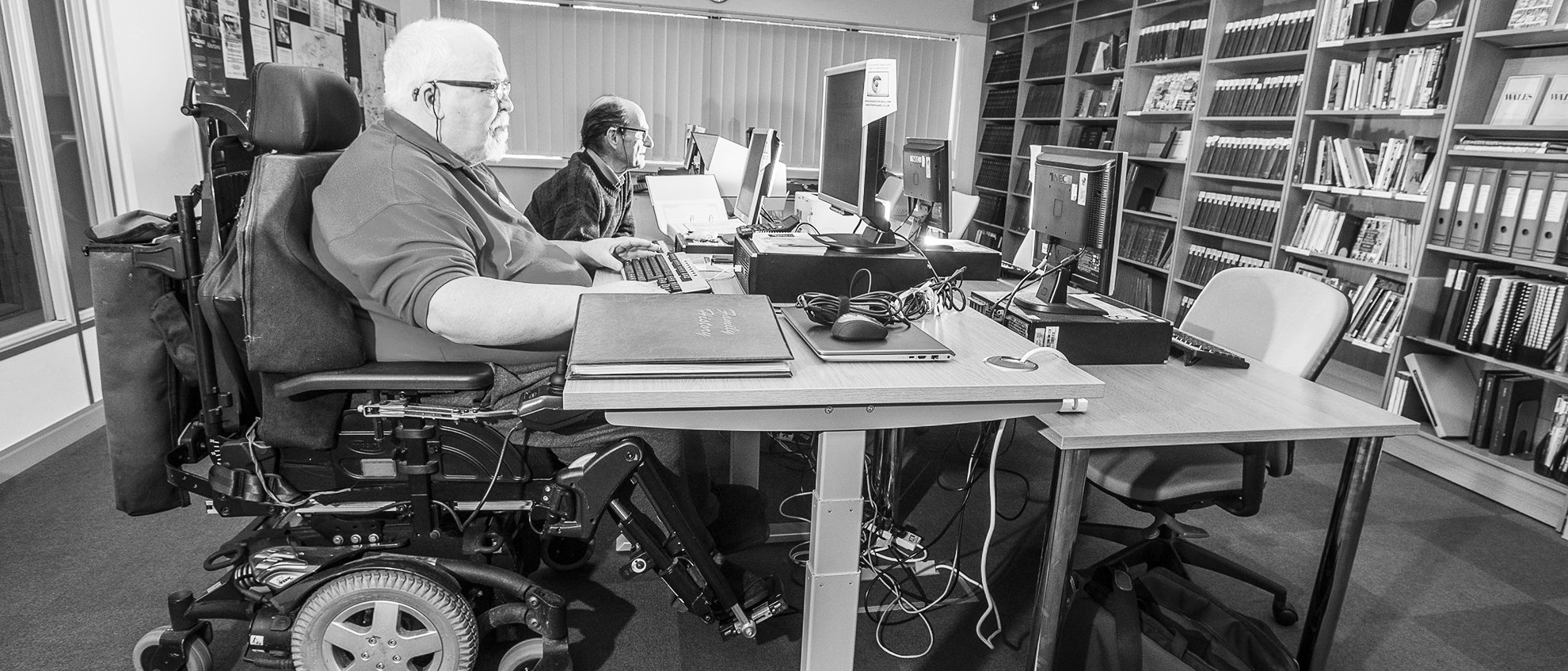
Platinum Jubilee Archive Testbed grants awarded
The UK National Archives has announced that their Archive Testbed Fund has awarded nine new grants to help archives celebrate Her Majesty The Queen’s Platinum Jubilee.
The recipients of the new grants are:
Solihull Heritage and Local Studies
Trafford Local Studies Centre
Bromley Historic Collections
London Borough of Sutton Archives
Plymouth Archives
Harrow Local History Collection and Archive
People’s Heritage Cooperative
Girlguiding Norfolk County Archives
St Helens Archive Service
The grants will fund a range of projects that will get local communities involved in the Jubilee and will explore how people across the country have celebrated jubilees, coronations and royal visits in the past.
For example, Solihull Heritage and Local Studies will use virtual reality alongside documents and images from their archives in nostalgia and reminiscence events. Trafford Local Studies Centre will create lamppost banners from historic images of jubilee street party celebrations and will hang them across Trafford’s neighbourhoods. QR codes on the banners will lead back to the centre’s online jubilee exhibition and encourage people to join in their contemporary collecting programme.
The archive team at The Box in Plymouth will create an exhibition of Jubilee-themed archives, with live music and refreshments for visitors. There will be a Jubilee photography competition with prizes for the best submissions, all of which will become part of the archive for the future. Girlguiding Norfolk County Archives will also create an exhibition, illustrating a timeline of Her Majesty’s involvement in the organisation from Guide in 1937 to Patron of Girlguiding today.
For more information about all the jubilee projects supported by our Archive Testbed Fund, please visit the UK National Archives website.
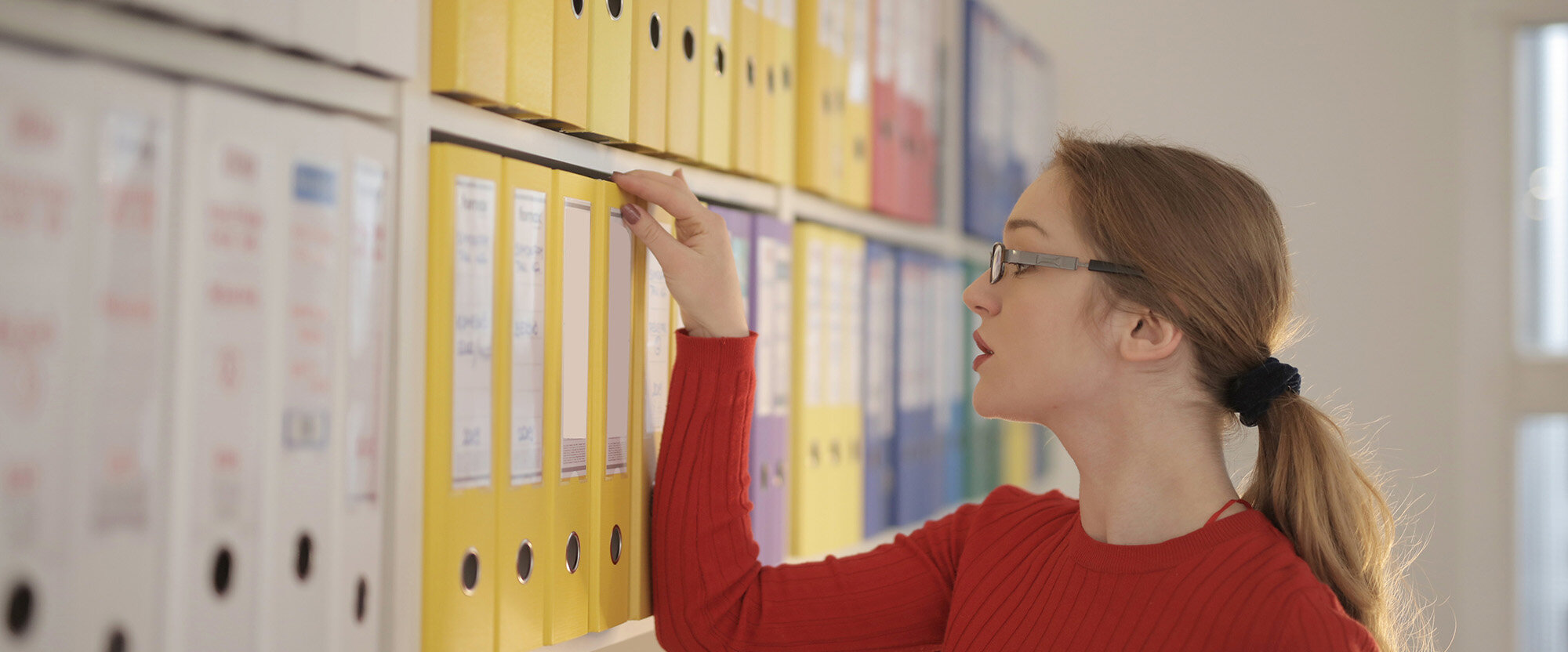
The UK National Archive's new advocacy toolkit
The UK National Archives has launched its new advocacy toolkit through its Higher Education Archives Programme (HEAP). Developed by consultant Kevin Bolton, the toolkit offers a simple four-step approach to advocacy, supported by new case studies, checklists and suggestions for further reading. With stakeholders less likely to be on site, it’s now more important than ever to be able to communicate clearly and effectively about the value of your archive service. This toolkit can help any archive (within higher education or not) and is divided into small digestible sections to fit around your other commitments.

Two from Townsweb
‘How to digitise’ guides: a collection of guides for (almost) every material
Townsweb Archiving has made the protection of heritage archives a priority for over twenty years. Working with some of the country’s rarest archives has given them an opportunity to form a specialised team and a series of tried and tested workflows. Acknowledging that not everybody who wishes to digitise will do so through a specialist provider, they decided to share these workflows, in a series of published guides. These guides have now proved so popular that they recently decided it was high time for the content to be reviewed, new contributions have been made and images updated, and all have now been gathered into their own dedicated resource area, for quick and easy access.
These new look ‘How to Digitise’Guides can be found via this link.
TWA Digitisation Grant 2022 - winners announced
The winners of TWA’s digitisation grants were announced at the ARA Conference on 1st September
The following organisations were chosen:
Brass Bands England
Digitisation of sheet music papers
This project seeks to preserve brass band heritage, making this important archive accessible online as a great source of inspiration for present and future bands.
Cinenova
Digitisation of film stills, slides, negatives, transparencies, and various paper records
This project aims to make valuable content relating to feminist film and video accessible online, protecting delicate material against deterioration and loss.
The Vintage Sports-Car Club
Digitisation of handbooks, leaflets, engineering books, drawings, photos, and more!
The digitisation of this archive will result in online accessibility, inspiring current and future engineers, and has a clear agenda for social impact.
Wiener Holocaust Library
Photographs relating to the Jewish Committee for Relief Abroad and Jewish Relief Unit
Digitisation will protect and safeguard albums and loose photographs, with inscriptions, to be accessed online and through events and workshops.
You can see the grants being announced live and find out more about the winners at TownsWeb’s blog here.
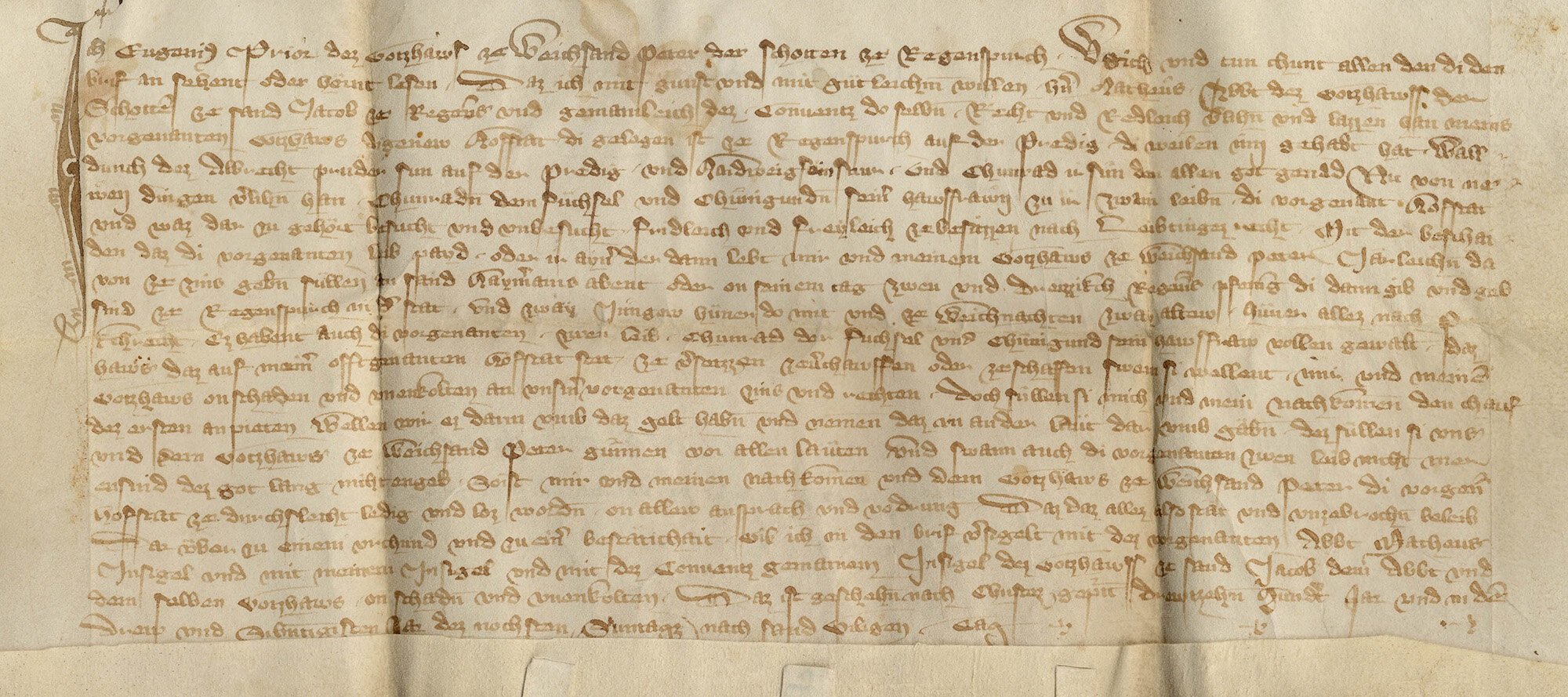
Archive Testbed Fund - Grants Awarded
The UK National Archives is delighted to have awarded 11 new grants from its Archive Testbed Fund to the following organisations:
Newcastle University Special Collections
University College London Special Collections
Writing on the Wall
Brent Museum and Archive
Wiltshire and Swindon History Centre
Hampshire Archives and Local Studies & Wessex Film and Sound Archive
University of Leicester
Archives: Wigan and Leigh
Bristol Archives
Eastside Community Heritage
Jewish Music Institute
The Archive Testbed Fund helps archives explore or evolve a new idea that has the potential to lead to an improvement in the way we all keep, preserve, promote and enable access to archives. The purpose of the fund is to encourage services to trial new approaches, provide them with room to experiment even if the initiative might ultimately fail, and enable the results and learning outcomes of our support to be shared with the wider archive sector.
Four of the eleven organisations above have developed projects relating to the 1920s as part of our 20sPeople programme. You can find out more about the 20sPeople programme on our website and share your 1920s records on Twitter using the hashtag #20sPeople.
You can read more about all of the grants awarded by the Archive Testbed Fund here.
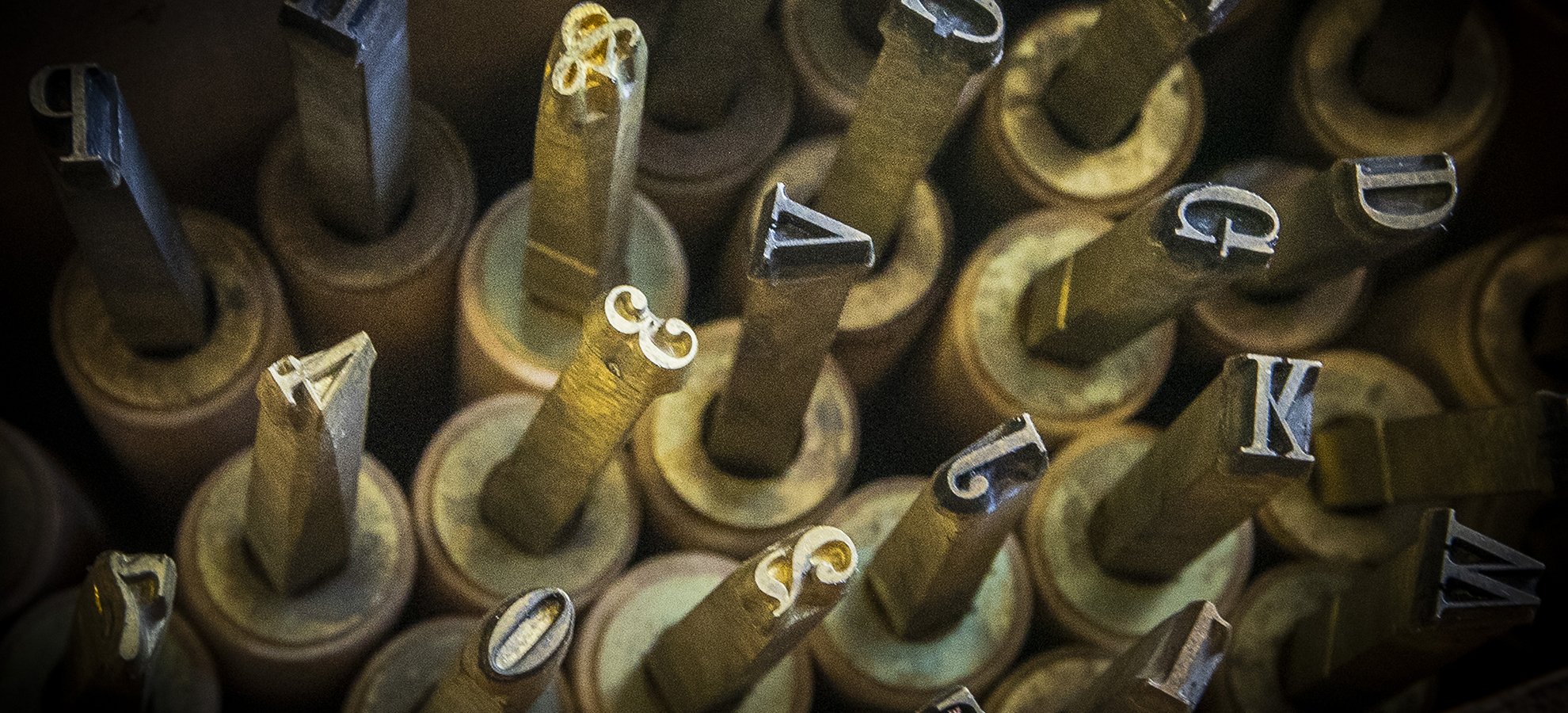
EDRM Toolkit available on general release
The Digital Preservation Coalition (DPC), in conjunction with the Nuclear Decommissioning Authority (NDA) in the UK, has made its new EDRMS Preservation Toolkit available on general release from today, following a 6-month Member preview.
Developed by the DPC’s EDRMS Preservation Task Force, the Toolkit offers advice on the preservation of records held within an Electronic Document and Records Management Systems (EDRMS) or other record keeping systems. Providing general information and guidance on areas that should be considered in order to define an effective approach to this challenge, the Toolkit applies to current systems in use, legacy systems that are falling out of use, and systems that are being procured for the future.
“We see this as an evolving area and would like the EDRMS Preservation Toolkit to grow and develop alongside the knowledge and experience of the community,” explains Jenny Mitcham, Head of Good Practice and Standards for the DPC and co-ordinator of the DPC’s EDRMS Preservation Task Force.
“We are now asking the digital preservation community to contribute to and develop this resource, by submitting additional resources or case studies.”
The DPC’s EDRMS Preservation Task Force, which created the resource, was established in 2020 to identify and elicit good practice, in response to a request to investigate this topic emerging from a digital preservation project with the NDA.
Providing resources like the Toolkit is just one of the ways the DPC supports the digital preservation community. An international charitable foundation and advocate for digital preservation, the Coalition helps its members around the world to deliver resilient long-term access to digital content and services through community engagement, targeted advocacy work, training and workforce development, capacity building, good practice and standards, and through good management and governance.

Survey to measure audio collection care
The British Library, as part of the Unlocking Our Sound Heritage project, would like your help in measuring audio collection care in the UK.
In 2016 they conducted a general survey about awareness of audio archival standards, and confidence in caring for audio collections. The results helped them better understand the challenges faced by galleries, libraries archives, museums and other collectors in the UK, and to design a project to address these challenges.
Now, as the Unlocking Our Sound Heritage project comes to a close they would like to revisit those survey questions, to understand how knowledge and confidence of audio archiving has changed in the UK.
The multiple choice questionnaire can be found here and takes less than five minutes to complete and doesn’t require detailed information about your collections. The answers will be used to evaluate the effectiveness of the project, and to assist the British Library in supporting the UK audio heritage sector in future. The results of the questionnaire will be collated and made publicly available, with all contributions anonymised.
To thank those who take part, they will send people who complete the survey a free copy of the Unlocking Our Sound Heritage A1 poster on caring for audio collections. To request the poster or if you have any questions, please contact uosh@bl.uk

New Networks for Change grants awarded
The UK National Archives has announced three new Networks for Change grants as part of their Collaborate and Innovate funding programme. Networks for Change grants help archive services to work together to embrace exciting opportunities and tackle shared issues. The Aviation and Aerospace Archives Initiative will use their grant to create a survey and guide to the archives of airline operators. They will also re-design their website to make their resources more visible and run a conference to develop connections and enthuse historians.
With their grant, the Chief Archivists in Local Government group will examine records about adoption and people with experience of care. They will use the research and focus groups to produce guidance and best-practice retention schedules. This round’s third Networks for Change grant will fund the creation of the Places, Plants and People archive network. This network will help a wide range of archives that hold botanical, agricultural and horticultural collections to improve various aspects of their practice, from inclusion and discoverability to digital preservation and engagement.
Find out more about the awarded grants on the UK National Archives website.

Launch of the Frank Simpson Archive
The Paul Mellon Centre is delighted to announce that the catalogue descriptions for the Frank Simpson Archive, which incorporates records from the London office of art dealers M.Knoedler & Co., are now available online via this link.
Frank Simpson (1911-2002) was an amateur art historian who worked as a library professional at The Courtauld Institute of Art (1933-1945), The Barber Institute of Fine Arts, University of Birmingham (1945-1958), the London office of M. Knoedler & Co. (1958-1971), and The Paul Mellon Centre for Studies in British Art from 1971 until his retirement in 1976.
Simpson had a life-long interest in the collecting of pictures, particularly from salerooms in England during the 18th-19th centuries and compiled a huge volume of information on the subject whilst working at the various organisations. The highlight of the collection comprises over 600 files of correspondence, research notes, and images originating from the London office of M. Knoedler & Co. These records concern approximately 5,000 British and European works of art which passed through the salerooms of the art dealer in the early to mid-20th century. They have been catalogued in great detail and include the titles of each work of art, as assigned to them by Knoedler’s staff, and are an incredibly rich resource for the study of provenance. Many of the records date to just after the First World War, so they document the disbanding of collections and the sales abroad which happened during this period.
The Archive may also be of interest to those researching the teaching of art history in the first half of the 20th century, as it includes course descriptions and syllabuses from The Courtauld Institute of Art. It may also appeal to those studying the role of women in the art world during the same period. Many of Knoedler’s records were created by Letitia Simpson (1884-1959), Frank’s aunt and Librarian before him at the art dealer’s London office. Although there are numerous records in this collection which demonstrate Letitia Simpson’s opinions on various works of art were widely respected professionally, nothing else is known about her. The Archive also includes letters from Hilda Finberg (c1885-1959), friend of Letitia’s and wife of art historian Alexander Joseph Finberg (1866-1939), which show she was actively engaged in research on various artists at this time.
Further information about the Simpson Archive can be found on the Centre's website via this link.

Wikidata for Digital Preservationists
The Digital Preservation Coalition (DPC) has made the next in its series of Technology Watch Guidance Notes, on Wikidata for Digital Preservationists by Katherine Thornton, available on general release.
Wikidata for Digital Preservationists gives a brief introduction to Wikidata before continuing to provide practical advice on using, contributing, describing and curating data entries to enable storage and access to trusted data.
This new Technology Watch Guidance Note and the rest of the series complements the DPC’s popular Technology Watch Reports and is designed to be a ‘bite-sized’ paper that might contain information about a problem, a solution, or a particular implementation of digital preservation and will provide a short briefing on advanced digital preservation topics.
Paul Wheatley, the DPC’s Head of Research & Practice and editor of the Technology Watch Series welcomed the release of the report saying: “This Guidance Note provides a helpful introduction to some of the opportunities and challenges surrounding using and participating with Wikidata and describes some of the practical steps we can all take to ensure it continues to be the extremely useful data set it has become.”
The Technology Watch publication series is just one of the ways the not-for-profit DPC supports the digital preservation community. An international advocate for digital preservation, the Coalition helps its members around the world to deliver resilient long-term access to digital content and services through community engagement, targeted advocacy work, training and workforce development, capacity building, good practice and standards, and through good management and governance.

Clore Fellowships 2022 programme
The Clore Fellowship programme for 2002 is now accepting applications.
The closing date for all applications is 12pm on Thursday 24 February 2022.
As the world changes, so do the needs of the sector – and the demands on cultural leaders. The Clore Fellowship programme addresses the needs of cultural leaders today and for the future.
The Clore Fellowship is for leaders who have ambition and vision, and can show clearly how they might take their leadership to the next level. Clore are looking for leaders who are dynamic, strategic and collaborative; who possess a high degree of intellectual curiosity, creativity, integrity and emotional intelligence. Applicants will be entrepreneurial and driven to making a difference in their organisation, community of practice, sector and/or society through culture.
Clore will be hosting two Q&A sessions on Zoom, where they'll share some helpful tips and insights into the application process and applicants will also have the opportunity to put questions to the team and some of their alumni.
Places are limited so please register your interest below.
Dates:
14:00 - 15:00 Friday 21 January (Please note: this session will have British Sign Language (BSL) interpretation, captioning, audio description and be recorded)
11:30 - 12:30 Wednesday 26 January (for Black, Asian and Ethnically diverse applicants only)
Find out more information and sign up to the Q&A
There is also other comprehensive information about the applications in this guide. If after consulting the guide you would like a conversation with a member of the Programmes team, please email fellowships@cloreleadership.org for assistance.

Publications resulting from the FedCSIS 2021 conference
Publications resulting from the FedCSIS 2021 conference (IEEE event; CORE rank B) are available with open access online.
There are two volumes:
Proceedings are available as Volume 25 of Annals of Computer Science and Information Systems (they can be also found in the IEEE Digital Library); check them out here.
Position and Communication Papers are available as Volume 26 of Annals of Computer Science and Information Systems; check them out here.

Discovering the careers of former Bridging the Digital Gap trainees
Catch up with two former Bridging the Digital Gap trainees, Isabelle Reynolds-Logue and Michael Norman, to find out more about their careers post-traineeship. Isabelle is now a Senior Imaging Technician on the Lotus Sutra Manuscripts Digitisation Project at the British Library and Michael Norman is the Data Specialist on the Heritage 2022 Video Digitisation Project at the British Film Institute (BFI). Check out the blog below to find out more about their roles and how they’re using the skills they learnt during their traineeships.
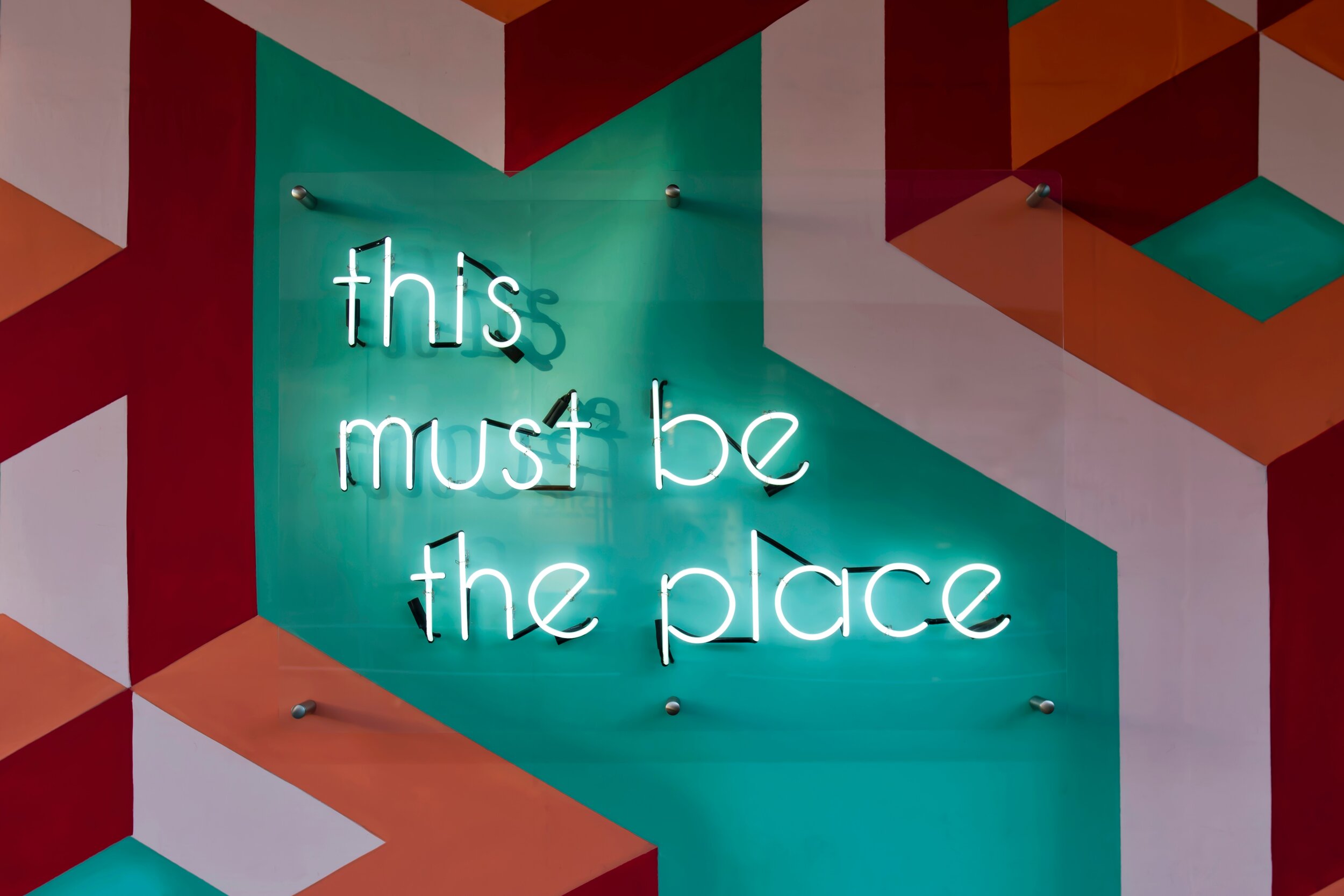
Innovative digital refugee map from Wiener Holocaust Library
The Wiener Holocaust Library have just launched a new and innovative digital Refugee Map where you can explore hundreds of refugee stories from Library’s family paper collections and follow the lives of individuals and families who fled Nazi persecution through unique and irreplaceable documents. This new digital resource can be found here. The site was created using the mapping platform Humap.
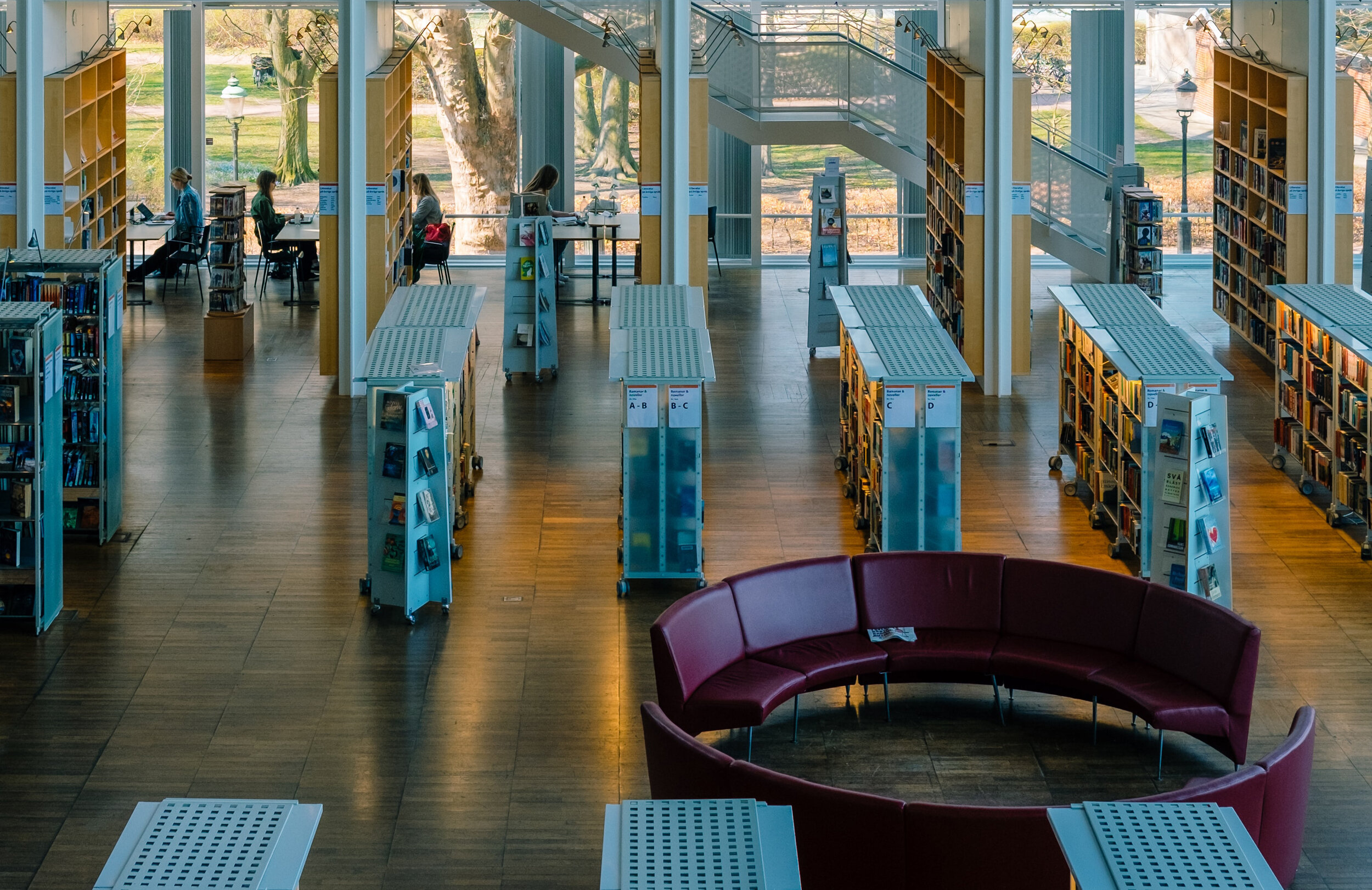
The Wicked Problem of Records Management
An interesting report from The National Archives of Norway: "The wicked problem of records management", has an ambitious vision that “by 2025, no public sector employee should have to manage records manually”. This Linkedin article by Espen Sjøvoll (Director of the Norwegian National Archives) introduces it, outlining the idea and linking to the full report.
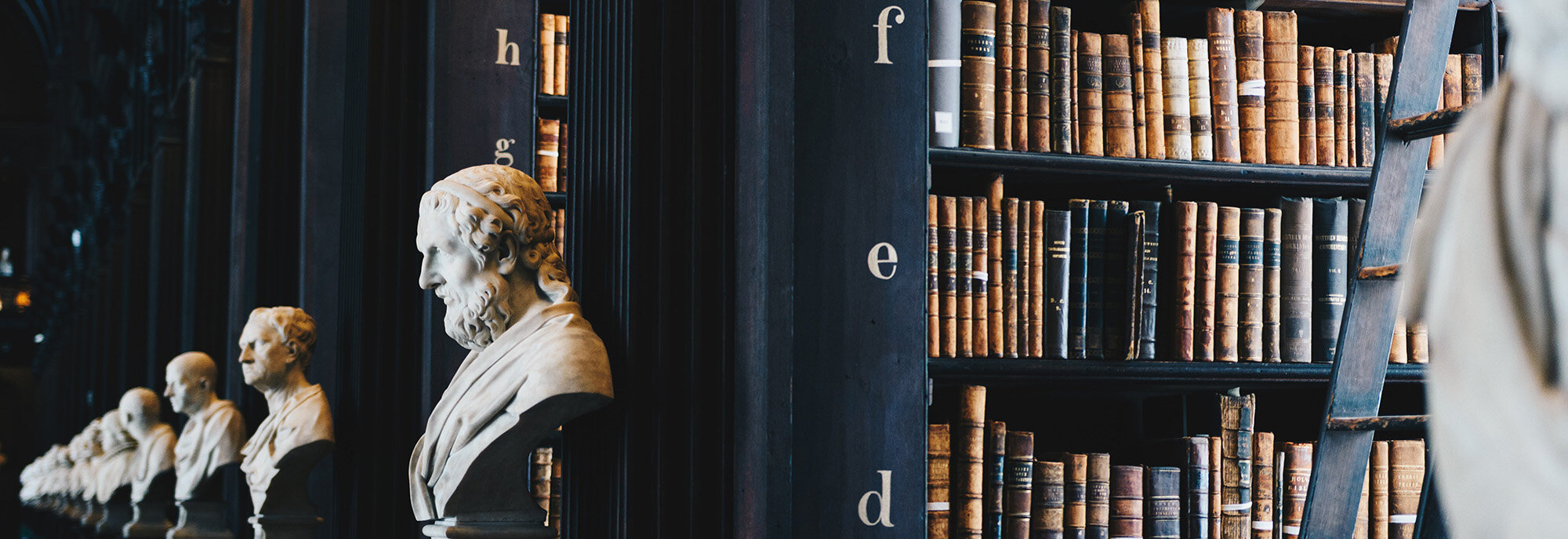
New Legal Records at Risk Guidance
The British Records Association has published new Legal Records At Risk guidance on their website here
The guidance is for solicitors and law firms needing advice on keeping archives. The guide has been endorsed by the Director of the Institute of Advanced Legal Studies, Professor Carl Stychin, the British Records Association and the Business Archives Council.
Staff working in archives can send the link when advising solicitors or other legal organisations they are in touch with around potential transfers of archives. It has been designed to help manage legal records, particularly business archives of solicitors and their client records and deeds.
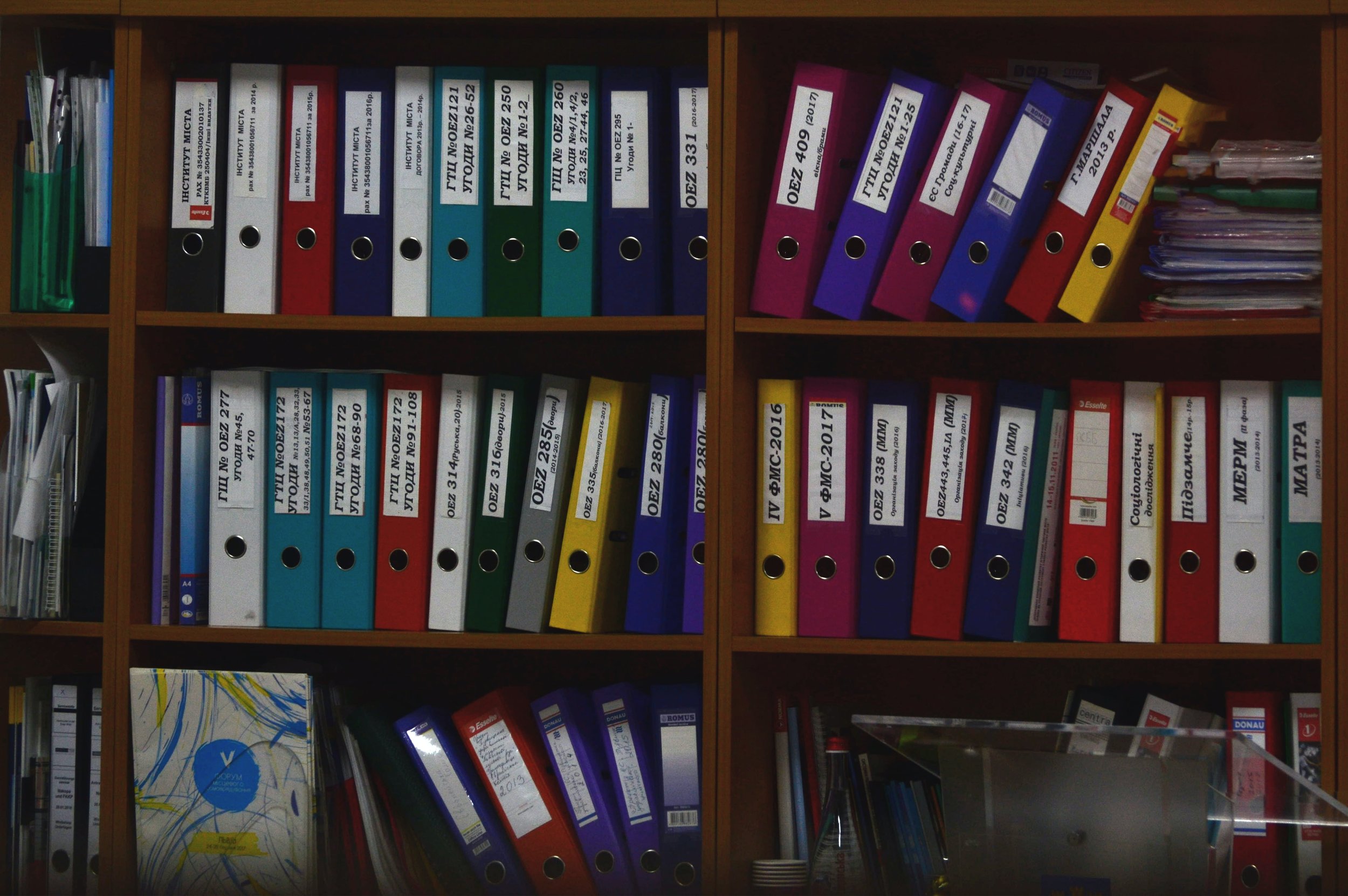
Free guidance booklet on “Preservation of Photographic Materials”
A new guidance booklet, Preservation of Photographic Materials, has been created in partnership between the Scottish Council on Archives Preservation Committee and The British Library. This guidance comes after the SCA's Focus on Photography series, consisting of online webinars held by Susie Clarke, an accredited Photographic Conservator and Consultant. You can access the guidance for free here on SCA’s website.

AEOLIAN Network’s first case study on the National Archives UK
AEOLIAN Network’s first open-access Case Study on The National Archives UK is now available to read or download here.
With this first case study on The National Archives UK (TNA), they have two main objectives. The first objective is to raise greater awareness of current work on Artificial Intelligence (AI) applied to archives and to encourage further collaborations with other institutions on both sides of the Atlantic. TNA’s projects have been developed in response to key challenges brought about by born-digital and digitised records. They range from testing existing AI-powered tools, to developing new approaches, such as using topic modelling to discover the latent or underlying topics of texts across a corpus. They examine a selection of TNA’s AI projects and others from across the globe that are addressing similar challenges. The second objective is to bring a critical perspective, from the viewpoint of Digital Humanities and Computer Science. Case Study 1 is written by a team composed of two digital humanists (Lise Jaillant and Katherine Aske) and one computer scientist (Annalina Caputo). Drawing on this cross-disciplinary expertise, they reviewed TNA’s projects and when appropriate, drew comparison with other projects conducted by other cultural institutions.
The AEOLIAN Network will create a total of five case studies from UK and US institutions over the course of the project. These case studies will address the use of AI in cultural heritage organisations and will all be available online with an aim to spread awareness and collaboration throughout the GLAM (Galleries, Libraries, Archives and Museums) sector and beyond. These case studies will feed into an open-access, 100-page report for an interdisciplinary audience outlining avenues for future research.

Outcomes of the Databases 2080 Workshop
The Landesarchiv Baden-Wuerttemberg has released videos and slides of all presentations of the Databases for 2080 workshop held in October 2021.
Sustainability of data is often an afterthought compared to the money and effort invested for digital solutions in research, politics, and industry. In the past decades, database technology has continually progressed and conferences on database technology have flourished. By contrast, there has been very little discussion on how to secure efficient and effective access to database content for longer periods. This was the reason for the Databases for 2080 Workshop that was launched by the Landesarchiv Baden-Wuerttemberg (with a call for participation in January 2021) held virtually on October 5th/6th 2021.
Videos and slides of all presentations from the workshop and they can be found here
A full workshop report as ebook will follow in summer 2022.

Six Case studies on Distributed Ledger Technology and record-keeping and archival science
The recently published special edition online journal 'Computer' focuses on Distributed Ledger Technology (DLT - including Blockchain) and record-keeping and archival science.
This edition is guest edited by Dr. Vicki Lemieux, Associate Professor in the School of Information, University of British Columbia. Dr Lemieux has written extensively on this topic previously.
Six case studies are offered that apply record keeping/archival theory and principles to solve real-world challenges in the blockchain/DLT space.
You can find the case studies here (available as open access articles).

Townsweb Archiving free digitisation resources available
Protecting heritage archives against damage and permanent loss is our number one priority but we recognise that not everyone has the benefit of specialist equipment and experience to help them to achieve their goals. With so much advice and information out there it can easily become overwhelming and time consuming just trying to get started.
Consequently, we have drawn a selection of our digitisation resources together into one place and you can find them all right here.
We've also released the first of a two-part eBook, which can be downloaded here.
The first part talks you through the main areas you should consider when embarking on a digitisation project, the options available to you, and how you might go about securing funding.
So, whether you intend to outsource your digitisation project to experts, or carry out the work in-house instead, you will be ready to achieve the goals you’ve set for your collection.
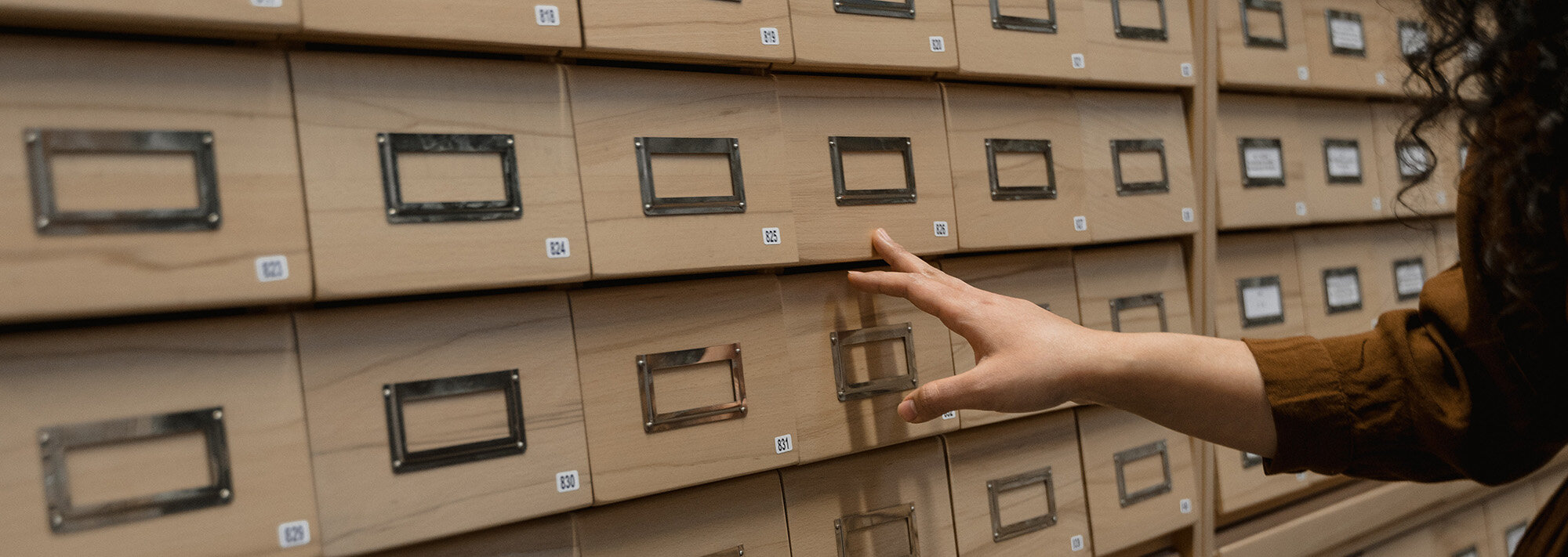
Logjam Methodology survey
Logjam is a methodology that allows archive services to assess and prioritise their backlogs. However this methodology was created back in 2003 and so The National Archives has commissioned Janice Tullock Associates to assess the level of interest in revising the Logjam Methodology. The National Archives is interested in how the tool is used, whether it should be updated and whether there is a role for a wider Collections Management Data tool.
Can you tell us about how you manage your backlog of uncatalogued archives?
How much do you know about your backlog?
How could that be made easier and more efficient?
Fill in the survey here to share your thoughts on these questions.
They are interested in hearing from you whether you have used the tool before or not, or even if you haven't heard of it. Please take the time to contribute and potentially help to develop a tool that is beneficial to all.
If you would like to hear more about the current Logjam methodology there is a short film available here or more information below:
How was Logjam created?
In 2003, the Logjam Methodology was developed as part of a project to calculate the size of the backlog of uncatalogued archives in North West of England. The project undertook a survey of 30 repositories of all types, calculated how long the cataloguing of each collection would take and helped archive services to prioritise their backlogs. As part of this work the project created both a database tool and a methodology which could be used by others to assess and prioritise their backlogs.
How has Logjam been useful to archive services?
Since 2003, several regions and individual services have used the same methodology to assess and prioritise their cataloguing backlogs. Archive services have used the results of the survey to lobby for and achieve investment in cataloguing. The results have been used by services to make funding bids, confident in their ability to deliver a catalogue within the allocated time and to prioritise their day-to-day work. Despite Logjam being quite elderly now, the methodology is referenced as a useful tool in Archive Service Accreditation.

How Archivists proved that the 1960 massacre in Paris had taken place
Philippe Grand, a former chief conservator at the Paris archives, was the first person to reveal evidence of the October 17, 1961 massacre of Algerians in the heart of Paris – one of the darkest chapters of postwar French history. Almost forty years after the hushed-up killings, testimonies by Grand and his colleague Brigitte Lainé helped ensure the massacre was finally recognised in a Paris court. As France marks the 60th anniversary of the atrocity, Grand spoke to FRANCE 24 about his role in safeguarding, and later revealing, the evidence.
Read the full story here

Plugged in Powered Up - Survey
As part of Plugged In Powered Up, The National Archives’ digital capacity building strategy for the sector, we are developing a digital engagement toolkit in collaboration with YelloBrick. This toolkit will be available on our website to support archives in their approach to creating content and telling stories in digital spaces.
YelloBrick have created a survey to assess confidence and current digital engagement outputs in the sector and to find out more about where support might be needed.
Please take part in the survey here:
The results from this survey will help us to create a toolkit that is relevant to you and helps you increase your confidence, skills and knowledge in creative digital outputs.
Thank you very much for taking the time to participate in the survey. If you have any additional questions about this survey, or would like to contribute further information, please don’t hesitate to contact us by email at asd@nationalarchives.gov.uk quoting Digital Engagement Toolkit Survey in the subject line.

IEEE Big Data 2021 - Call for Papers: 6th Workshop on Computational Archival Science
The workshop will take place virtually during IEEE Big Data 2021 which runs from
Dec 15-18 2021 online (EST Timezone). Deadline for submission of workshop papers is Oct 22nd
Fine out more here: https://ai-collaboratory.net/cas/cas-workshops/2021-6th-cas-workshop
The workshop is part of IEEE Big Data 2021 (http://bigdataieee.org/BigData2021/).
Workshop overview:
The large-scale digitization of analogue archives, the emerging diverse forms of born-digital archive, and the new ways in which researchers across disciplines (as well as the public) wish to engage with archival material, are resulting in disruptions to transitional archival theories and practices. Increasing quantities of ‘big archival data’ present challenges for the practitioners and researchers who work with archival material, but also offer enhanced possibilities for scholarship, through the application both of computational methods and tools to the archival problem space and of archival methods and tools to computational problems such as trusted computing, as well as, more fundamentally, through the integration of computational thinking with archival thinking.
Important Dates:
Oct. 22, 2021: Electronic submission of workshop papers
Nov. 1, 2021: Notification of paper acceptance
Nov. 15, 2021: Camera-ready of accepted papers
Dec. 15-18 (exact day TBD) 2021: Workshop
All papers accepted for the workshop will be included in the conference proceedings published by the IEEE Computer Society Press. In addition to standard papers, the workshop will incorporate a student poster session for PhD and Master’s students.
Submissions to previous workshops can be seen in the CAS Portal.

RCPE launches website on Victorian Highlands and Islands medicine
The Royal College of Physicians of Edinburgh has launched its new website, Remote & Rural Remedies.
At its core, Remote And Rural Remedies features a digitised and transcribed collection of surveys conducted by the College in the mid-19th century to investigate medical practice in the Scottish Highlands & Islands. These records feature fascinating details about the care that was available to remote communities, the challenges faced by practitioners and the opinions of the survey respondents. Inspired by this collection, RCPE have created accompanying school activities, blog posts, videos and online exhibitions to provide context and support different avenues of engagement.
This resource also includes interviews with doctors and nurses currently practicing in the Highlands & Islands – uncovering stories of the challenges of dealing with medical emergencies, COVID-19 and the medical conditions faced by those living in the Highlands & Islands.
Daisy Cunynghame, Head of Heritage, says: “These records demonstrate the College’s long history of conducting research into healthcare provision and medical practice with the aim of regulating the profession to protect the public. We are excited to bring this collection to the public eye and very proud of the efforts of colleagues and volunteers that were involved in creating this web resource. Researchers now have access to digitised records which highlight the challenges of medical aid and healthcare in the Highlands and Islands at a time of increasing social, industrial and economic upheaval. Our hope is that the website becomes a hub of continued activity for our audiences to learn about, discuss and reflect on remote and rural medicine in Scotland both then and now.”
Naturally, with the ongoing COVID-19 pandemic, it has once again highlighted the issue of sufficient and regular medical care and supply in remote areas. This newly launched website will enable allow current medical practitioners and allied health professionals to contribute to the discussion by submitting their own survey. In these surveys, the College invites practitioners to share their experiences and perspective on remote and rural medicine today as well as and how much and what which aspects have changed over time.
“There are, probably, few men in any situation, who undergo greater hardships in the discharge of professional duty, so continuously, and with so little prospect of reward, than do these Highland Practitioners”

Announcing the Completion of Mapping Jewish London (MJL)
‘Mapping Jewish London' is AIM25’s contribution to the pan-European Yerusha project that will enable researchers to cross-search online catalogues of archive collections relating to the history of Jewish people, organisations, culture or events, and is funded by the Rothschild Foundation Hanadiv Europe. AIM25, focused on London, is a charity that promotes access to the capital’s archives and as a consequence of Mapping Jewish London it has uncovered more than 800 relevant collections that will shine light on Jewish archival heritage held in no less than 45 of London’s archives, libraries and museums.
In deciding how to share this project, we have opted to publish three short interviews with team members and archivists. We hope to organise a Zoom conference at a later date and to invite members of the Jewish community, scholars and information professionals to explore the issues raised by the project and the potential for this work to be carried further, as MJL has only connected with a fraction of the material that exists in London. The interviews may be viewed at: Mapping Jewish London - YouTube
Now that ‘Mapping Jewish London’(MJL) has drawn to a close, it is worth reflecting on the breadth of Jewish holdings in London’s many archives and museums and to stress that this project brief changed and ultimately looked at material that was already catalogued to identify and occasionally enhance the Jewish connection to the material. As part of the project, searches of over 200 repositories in the capital identified thousands of Jewish collections, with the 800 most significant aggregated into Yerusha portal.
These collections span many centuries and include institutional and personal collections covering science, medicine, religion, philanthropy, literature, academia, art, music, politics, society, finance, healthcare, local government and education, as well as other topics. They include manuscripts, objects, visual material, audio and paintings created and left behind by women and men. Clearly, it would be impossible to capture the essence of this rich array of material here, but we felt it important to give at examples of the kinds of material MJL sought out to include.
Archives users will know that people are at the heart of historical records and Yerusha has revealed some extraordinary individuals. As we know, thousands of Jewish men and women from all walks of life sought refuge in Britain during the Nazi regime and many of their private papers have survived. The Imperial War Museum and The Wiener Holocaust Library house a significant number of Jewish personal collections, telling the traumatic stories of ordinary people whose lives were ripped apart in the early 20th century.
Oral and family history researchers can listen to and read harrowing stories recorded by the people who experienced them. Among the hundreds of such IWM collections is a recording with Eva Mitchell, who fled to Britain in 1939 . Her interview highlights the impact of anti-Jewish legislation on her family life and education. She recounts the attack on her family home during Kristallnacht in 1938 and, later, her escape to rural England where she found peace.
Jewish migration to Britain long predates the 20th century and can be traced back to centuries earlier. Having been expelled from England in the late 13thcentury, it was not until the mid-17th century that Jews were permitted to return and the records identified by MJL reflect this. Although the British Library holds collections of ancient Jewish liturgical manuscripts dating back to at least the medieval period, most of the collections gathered by MJL relate to the 1700s onwards, with a heavy focus on the 19th and 20th centuries.
An example of 18thCentury material includes papers of Emanuel Mendes da Costa Da Costa’s mercantile family escaped Jewish persecution in Portugal to settle in Rouen, France, arriving in London in the early 1700s, where Emanuel was born in 1717.He was the ninth child, but went on to flourish as a botanist, naturalist and philosopher, gaining fellowship of the Royal Society in 1747, among the first Jewish fellows to be elected. His records are held across three repositories.
The Royal Society hold wonderful illustrations of his findings, as well as his financial account books, which researchers can mine for evidence of his fascinating life and work; the British Library holds manuscripts and a commonplace book, a treasure trove of personal, professional and anecdotal insights; and among his papers in the Royal College of Surgeons archives are his catalogues of fossils.
MJL has highlighted other historical collections which pertain to the Jewish experience but which also resonate with modern life as the Yvonne Kapp Papers, a political activist and writer, born in London in 1903 to prosperous Jewish immigrant parents. Kapp’s papers detail the contribution she made in aiding Jewish refugees arriving in Britain during the pre-WW2 period. In addition to working with Jewish refugees, she also worked with the largest single influx of refugees in British history -4000 Basque children evacuated from Spain during the Civil War. Kapp was appointed assistant director of the Czech Refugee Trust Fund in the late 1930s,and researchers with an interest in Jewish history, refugees and refugee organisations can explore the minutes and papers of this organisation within this collection at University of London’s Senate House Library.
Questions regarding ‘Mapping Jewish London’ can be sent to Rachel Howse Binnington, Project Co- Coordinator at rbinnington@fortnumandmason.co.uk. More information regarding the Yerusha project can be found at www.yerusha.eu.Questions regarding AIM25 may be sent to: talk-to-us@aim25.com. The interviews may be viewed at: Mapping Jewish London - YouTube

New British Standard on Records Management is introduced
Following a two-month public consultation in late 2020, BS 10025, a new Code of practice for the management of records, was published in late April 2021.
The Code provides practical guidance for those responsible for managing the data, documents and information that an organisation produces, receives and accumulates in the delivery of its operations and activities. It will be of particular value to those responsible for leading records management within their organisation (or supporting records management in a department or business unit) but who might not be familiar with records management principles and best practice. By providing an understanding of the wider records management framework, it will also help those tasked with supporting specific areas of records management, for example those developing IT systems being used to capture, process and store records.
For the first time in a British or International standard, the new Code brings together guidance and recommendations on all the different elements of records management that an organisation needs to have in place. The guidance applies to all organisations irrespective of their size, complexity or operating environments. It is relevant to organisations in the public, private and not-for-profit sectors, including agencies, authorities, charities, companies, corporations, government departments, institutions, partnerships, universities and sole traders.
The new Code is ground-breaking in that is has been written in a way which enables the reader to use whichever terms work best for them and their organisation for what they produce, receive and accumulate – whether that’s data, documents, information or records (or a combination of these and other related terms).
Rod Stone, Chairman of the BSI Records Management Committee and ARA Representative, comments: “All those working for an organisation have a role to play in the management of its records, and this new Code provides an excellent foundation for them. Although the Code is not a ‘management system’ standard or a compliance standard, it is guidance that has been written in a way which enables organisations to demonstrate they are applying the guidance and following good practice.”
Click here to purchase the new Code of practice.

Information Resource: In-house vs. Outsourcing Digitisation
Having recently explored some top tips for writing successful funding applications in its downloadable Funding Resource Pack, which can be found here, TownsWeb Archiving wanted to go further and explore the two main options available for digitising archive collections: inhouse and outsourcing.
Consequently, TownsWeb Archivingtalked to Abby Matthews (Archive and Family History Centre Manager, who digitised inhouse) and Julia Parks (Project Manager, who digitised through outsourcing) about the different methods, the processes involved, the unique hurdles and the successful outcomes of their tried and tested approaches. This resource provides a neat and thorough analysis, enabling readers to compare and contrast the options, while gathering some really useful hints and tips for getting it right first time.
This resource should prove helpful to any archive holder thinking about undertaking a digitisation project, supporting them to make well informed choices about the methods that best suit their needs, resources and budgets.
Both Abby and Julia’s projects achieved great success and you will find some wonderful images and links to the work they carried out. You can find our information resource and follow their unique journeys here.

Enhancing ePADD with Preservation Functionality - ePADD+
We are delighted to announce a new collaborative project between Harvard University, The University of Manchester and Stanford University to enhance our collective capacity to archivally acquire, process, preserve, and make available email collections. As critical documentation of life in the digital age, the preservation of email is central to the mission and values of archives and archivists.
This project, entitled Integrating Preservation Functionality into ePADD or ePADD+ in brief, will integrate long-term email preservation functionality into Stanford University's open-source email archiving software program, ePADD. The enhanced product will provide the digital archiving community with a tool comprehensively supporting the full email archiving lifecycle more robustly.
The 18-month project was generously awarded $100,000 through the University of Illinois at Urbana-Champaign's Email Archives: Building Capacity and Community (EA:BCC) program. EA:BCC is a re-grant program administered through Illinois and funded by the Andrew W. Mellon Foundation that seeks to build email archiving capacity in archives, libraries, and museums. The proposed activities are a direct outcome of recommendations from The Future of Email Archives report, also funded by the Mellon Foundation, which emphasizes the importance of better interoperability and integration between the many disparate email archiving tools that have surfaced in the digital archiving community.
"The University of Manchester Library is delighted to be a co-partner in this international collaborative venture to augment the ground breaking work of both Harvard and Stanford Universities in the field of email archives. The ePADD+ project represents an important next step in the development of integrated tools to support the processing and preservation of email archives and will significantly benefit those engaged in this field of work within the UK and internationally," Professor Christopher Pressler, John Rylands University Librarian and Director of The University of Manchester Library.
Because the requirements of preservation infrastructure and workflows vary greatly across institutions, the enhanced ePADD will support functions for local customization and extensibility. The three project partners will each utilize this capability to configure ePADD for their different organizational contexts. The software development activity will align with open-source best practices in order to support wider community contribution to ePADD and better software sustainability.
"As our current extended ePADD+ team tackles preservation, the next component of the curation lifecycle for email archiving, Stanford Libraries Department of Special Collections is looking forward to consulting with Harvard University and The University of Manchester on this crucial cycle of work for the ePADD Project <https://library.stanford.edu/projects/epadd>," Glynn Edwards, Assistant Director, Special Collections, Stanford Libraries.
For updates on the ePADD+ project:
Visit the project page on the ePADD website
Follow the #ePADD+ project on Twitter @e_padd

Inc Arts launches anti-racism tool for cultural sector
Unlock is a toolkit for the creative and cultural sector to take measurable action against racism.
Unlock gives arts organisations practical steps to take anti-racist action. Unlock has in it over 100 actions that will help creative work places become more inclusive. The process is entirely confidential: at the heart of the Unlock toolkit is a commitment to give everyone equal treatment through trust, confidence, dignity and respect.
The toolkit can be found here.

School of Scottish Studies Archives celebrates its 70th anniversary
This year the School of Scottish Studies Archives (SSSA) celebrates its 70th anniversary.
"Where artistry and everyday life meet" - In 1951 the School of Scottish Studies began collecting images, stories and voices of the Scottish lives that had been often overlooked. As its famed Archive celebrates its 70th anniversary, its impact still resonates.
Do follow our celebrations on Twitter, where we are @EU_SSSA, using #SSSAat70, and on our blog: http://libraryblogs.is.ed.ac.uk/sssa/category/blog/
Throughout the year, staff and guest bloggers will be contributing to a fascinating series on the archives in 70 objects: http://libraryblogs.is.ed.ac.uk/sssa/sssa-in-70-objects , so be sure to bookmark the page and keep in touch.

DPC RAM 2.0 now available!
The Digital Preservation Coalition (DPC) relaunches an updated version of its Rapid Assessment Model (or DPC RAM) this week.
Designed to enable rapid benchmarking of an organisation's digital preservation capability, the DPC RAM is a digital preservation maturity modelling tool applicable to organisations of any size in any sector, and for all content of long-term value.
Originally developed in conjunction with the Nuclear Decommissioning Authority in the UK and first launched in 2019, the DPC RAM uses existing good practice to offer a model which is easy to understand, quick to apply and freely available for anyone to use.
Version 2 of DPC RAM retains its existing structure of 11 sections and 5 maturity levels and the examples provided within the model now cover additional areas such as user needs, ethics, environmental sustainability, accessibility, organisational strategy and continuity planning. Other changes to the model have focused on ensuring consistency and clarity.
Click here to find out more.
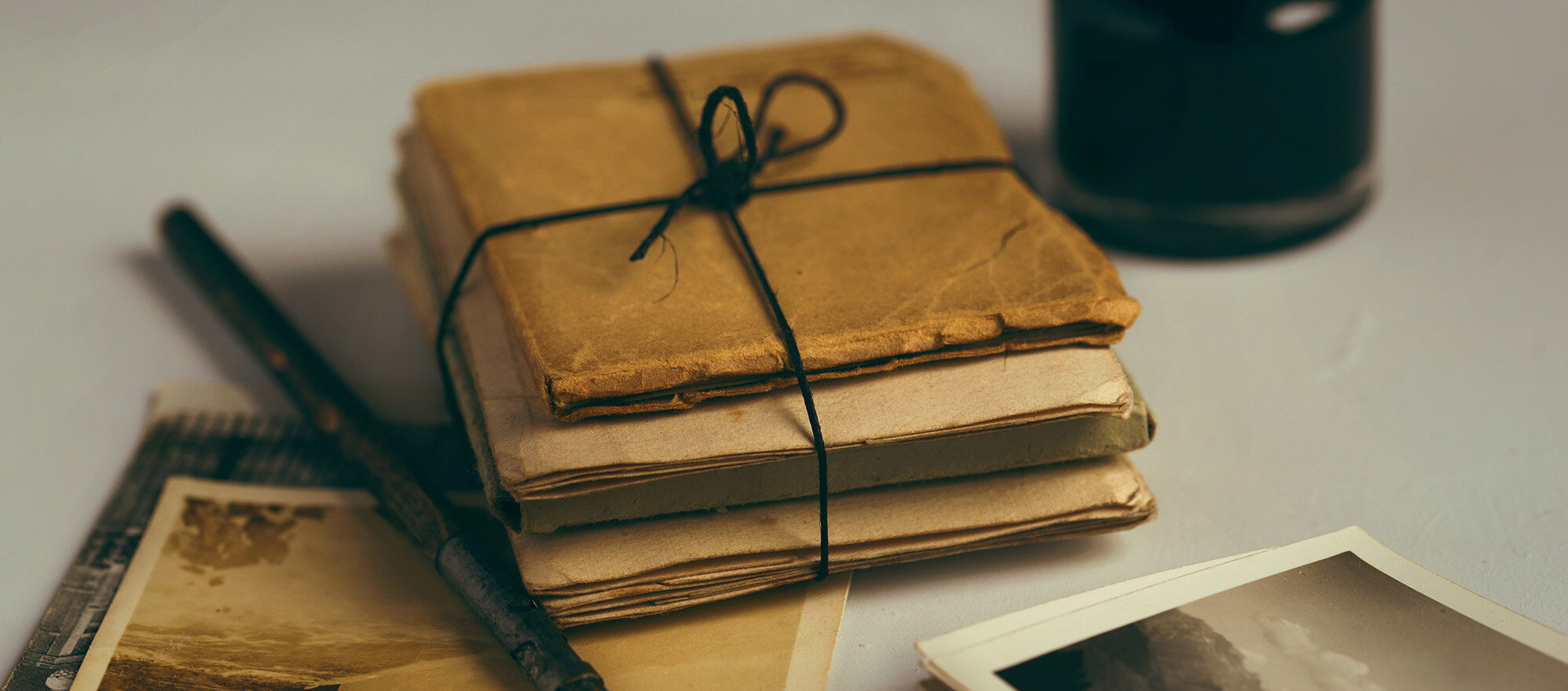
NUI Galway project to digitise letters from emigrants over hundreds of years
Archivists in Galway are starting work on a project to digitise thousands of letters sent home by emigrants to America, featuring transcripts of material sent from the late 1600s to the mid-1950s. Click here for further details.

New web-based resource for community archives launched
Are you a community or family archivist who would like some friendly guidance and support? If so, the new web resource created by archive professionals at Gloucestershire Archives could be just what you‘re looking for. There are plenty of areas to look at, including non- technical, down to earth advice on how to keep digital records safe into the future. Click here to access the new resource.
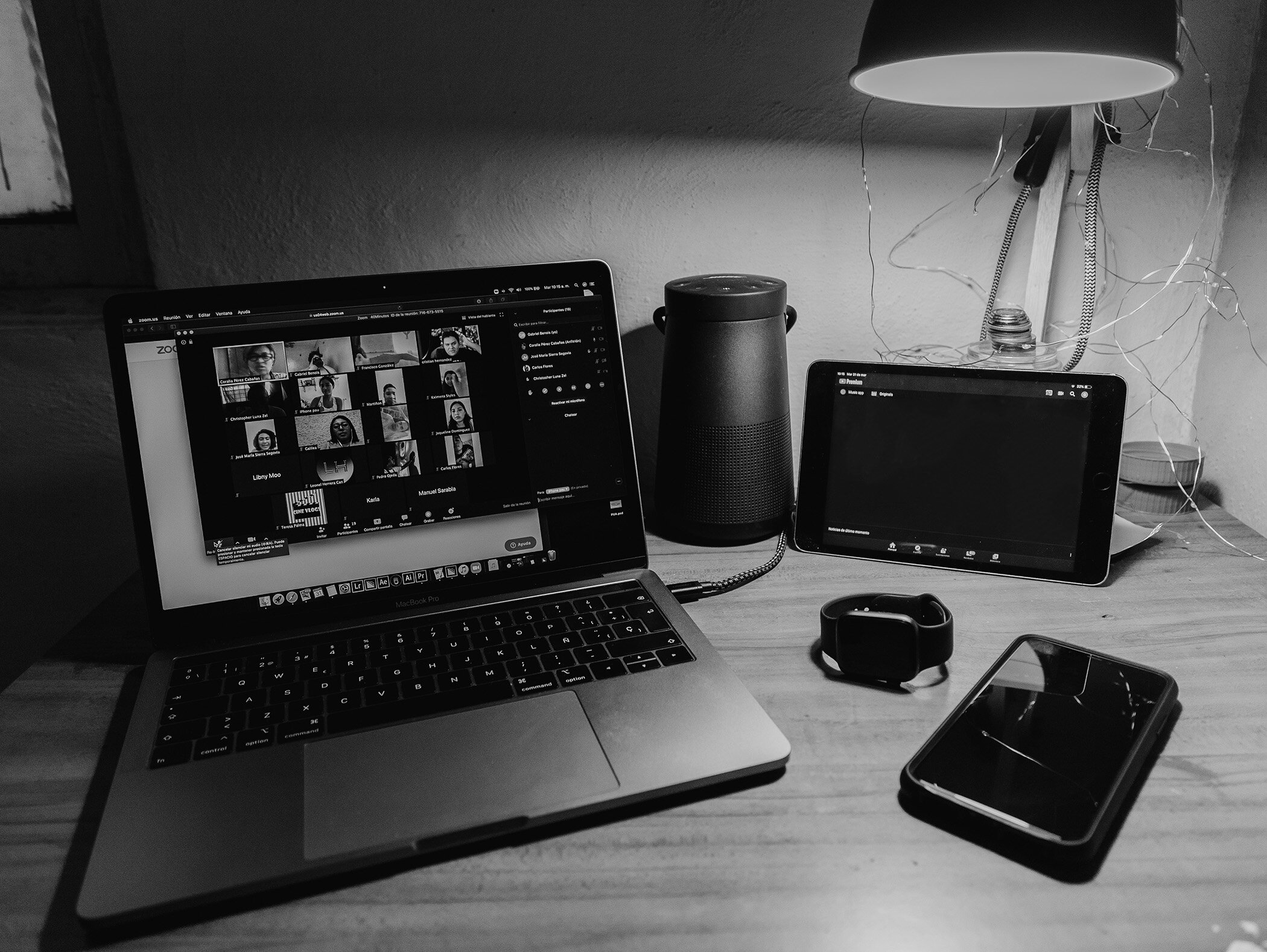
UNESCO News on Memory of the World Programme
The UNESCO Documentary Heritage Unit is pleased to share two pieces of news on the Memory of the World (MoW) Programme.
MoW Global Policy Forum: 21st-22nd September 2021 in Paris.
The 2nd MoW Global Policy Forum will take place from 21st to 22nd September 2021 in Paris. Subject to Host Country rules governing Covid-19, the event is scheduled to be held as a hybrid, incorporating physical and virtual participation. It focuses on disaster risk reduction and management for sustainable preservation of documentary heritage. For details and to register, please visit this UNESCO web page.
‘Documentary Heritage at Risk -A Pilot Survey’ report is now available.
This pilot survey by UNESCO aimed to assess the extent of disaster risk to which memory institutions had been exposed, and how they had addressed them as a matter of emergency preparedness. The report includes various key findings and recommendations not only for memory institutions but to all stakeholders, including the policymakers and the international community. We hope that the survey report will inspire your activities and policy-making. For details, please visit this UNESCO web page.

Business Archives Council Announce 2021 Cataloguing Grant
BAC is excited to announce that this year’s cataloguing grant for business archives is a one-off bumper grant! This year a single grant of £7,000 is available. Funding has been provided by BAC and the former Archives and Artefacts Studies Network (A2SN).
BAC is delighted to have the support this year of the Community Archives and Heritage Group. The decision on the award of the grant will be made by a Cataloguing Grant Panel established by BAC which consists of two executive committee members, one non-executive member and a member of the Community Archives and Heritage Group. Panel members will not judge applications where they have a research or employment affiliation.
The Cataloguing Grant for Business Archives (2021) launches on 12th April 2021. The deadline for applications is 25th June 2021. Further information, including guidance notes can be found here.
Any questions about The Cataloguing Grant for Business Archives should be addressed to Natalie Attwood, Administrator, BAC Cataloguing Grant.

Free Funding Resource Pack
TownsWeb Archiving has released a Funding Resource Pack. If you are the holder of an archive collection then you have no doubt embarked upon, or considered embarking upon, a digitisation project. You will also be aware that this comes at a cost. Securing funding is often where most projects fail to get off the ground and it is the primary reason for our annual TWA Digitisation Grant.
You can sign up for TownsWeb Archiving’s free funding focused resources by following the link below whereupon you will be directed to Debbie Cooper’s (Manager for PCN, Producer for FORMAT Festival, previous Fundraising Manager for Museums Sheffield and Artist and Photographer) successfully tried and tested advice on ‘How to Write When You’ve Got a Need’. You will also receive, direct to your email, TownsWeb Archiving’s funding pack, which consists of three downloadable resources that have been heavily informed and developed by industry experts. You will then continue to receive free focused resources over the coming weeks, to make the whole process that bit easier.
Grants are a really prudent and practical way of overcoming what has become one of the most significant barriers to digitisation. However, applying for funding can often feel a bit ‘hit and miss’ and can take an awful lot of time and focus. TownsWeb Archiving wanted to open up the process to make it more accessible, securing guidance from those who have themselves achieved success.
Click here to opt in and receive all of the above.
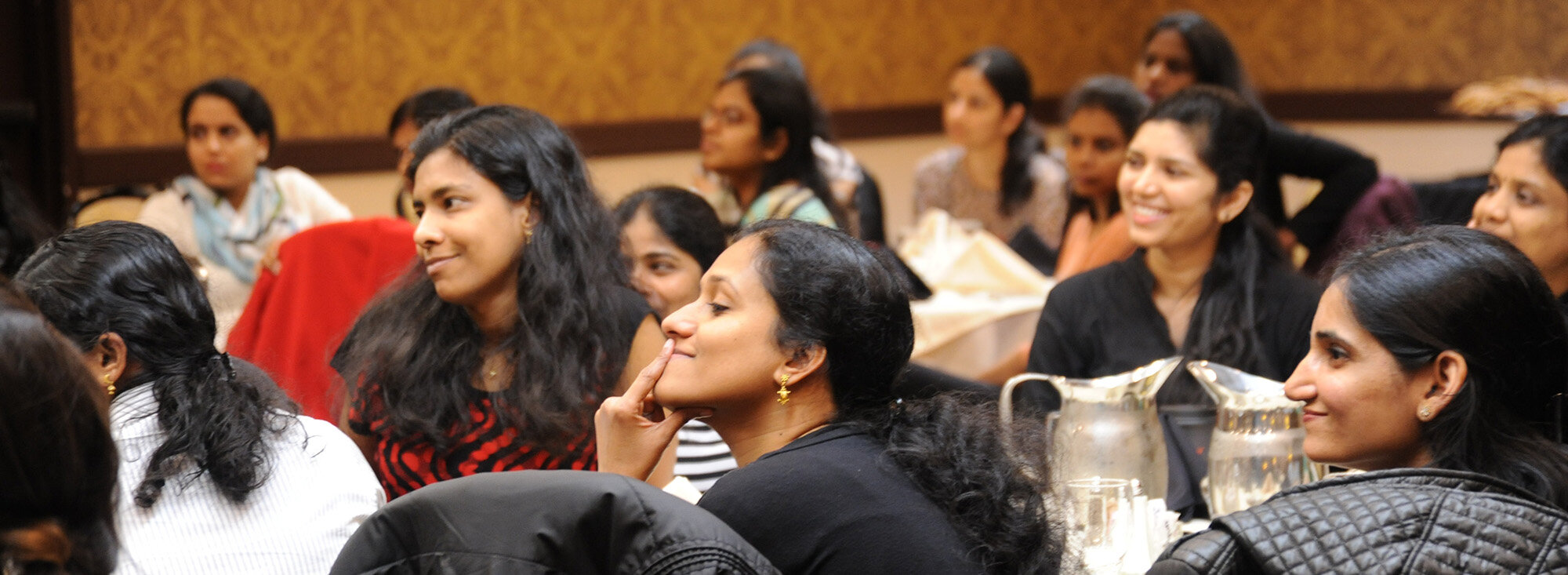
Pragmatic Audiovisual Preservation: DPC releases new Technology Watch Report
First released to its members on World Day for Audiovisual Heritage, the Digital Preservation Coalition (DPC) is pleased to announce the public launch of its latest Technology Watch Report, Pragmatic Audiovisual Preservation by Ashley Blewer.
A specialist in video, digital preservation workflows and infrastructure, Ashley currently works for Artefactual and acknowledged that the preservation of audiovisual materials remains a challenging topic, saying: "Moving beyond the complexity of audiovisual materials and the urgency around digitization, concepts related to significant technical characteristics and the impact each has on digital audiovisual files can be very daunting."
Her report for the DPC, Pragmatic Audiovisual Preservation, aims to provide easily digestible - and pragmatic - guidance for practitioners with a basic knowledge of digital preservation concepts and archival practices, but without expertise in audiovisual materials.
Click here to read the report.

DPC releases new Technology Watch Guidance Note
Which checksum algorithm should I use?
The Digital Preservation Coalition (DPC) has launched the next in its series of Technology Watch Guidance Notes entitled ‘Which checksum algorithm should I use?’ by Matthew Addis today.
As the title suggests, Which checksum algorithm should I use? is intended to help answer one of the perennial questions in digital preservation. Starting by defining key terms, the report goes on to identify the reasons for using checksums and the algorithms which could be applied, before providing practical advice on where to store checksums as well as some of the tools available to create checksums and perform fixity checks.
This new Technology Watch Guidance Note and the rest of the series complements the DPC’s popular Technology Watch Reports and is designed to be a ‘bite-sized’ paper that might contain information about a problem, a solution, or a particular implementation of digital preservation and will provide a short briefing on advanced digital preservation topics.
Click to:
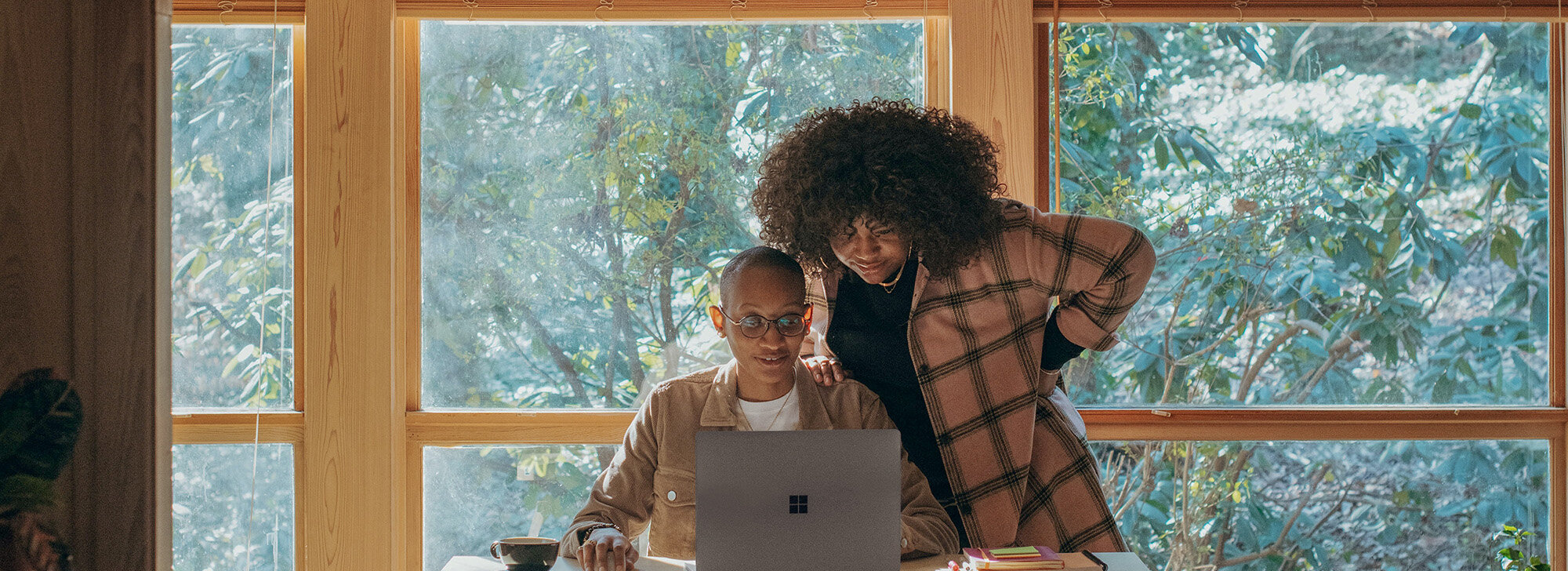
SCA guidance on creating online exhibitions
The Scottish Council on Archives has produced resources about creating online exhibitions. There is an introductory ten-minute video and two recorded webinar sessions on this subject. Click here for more information.
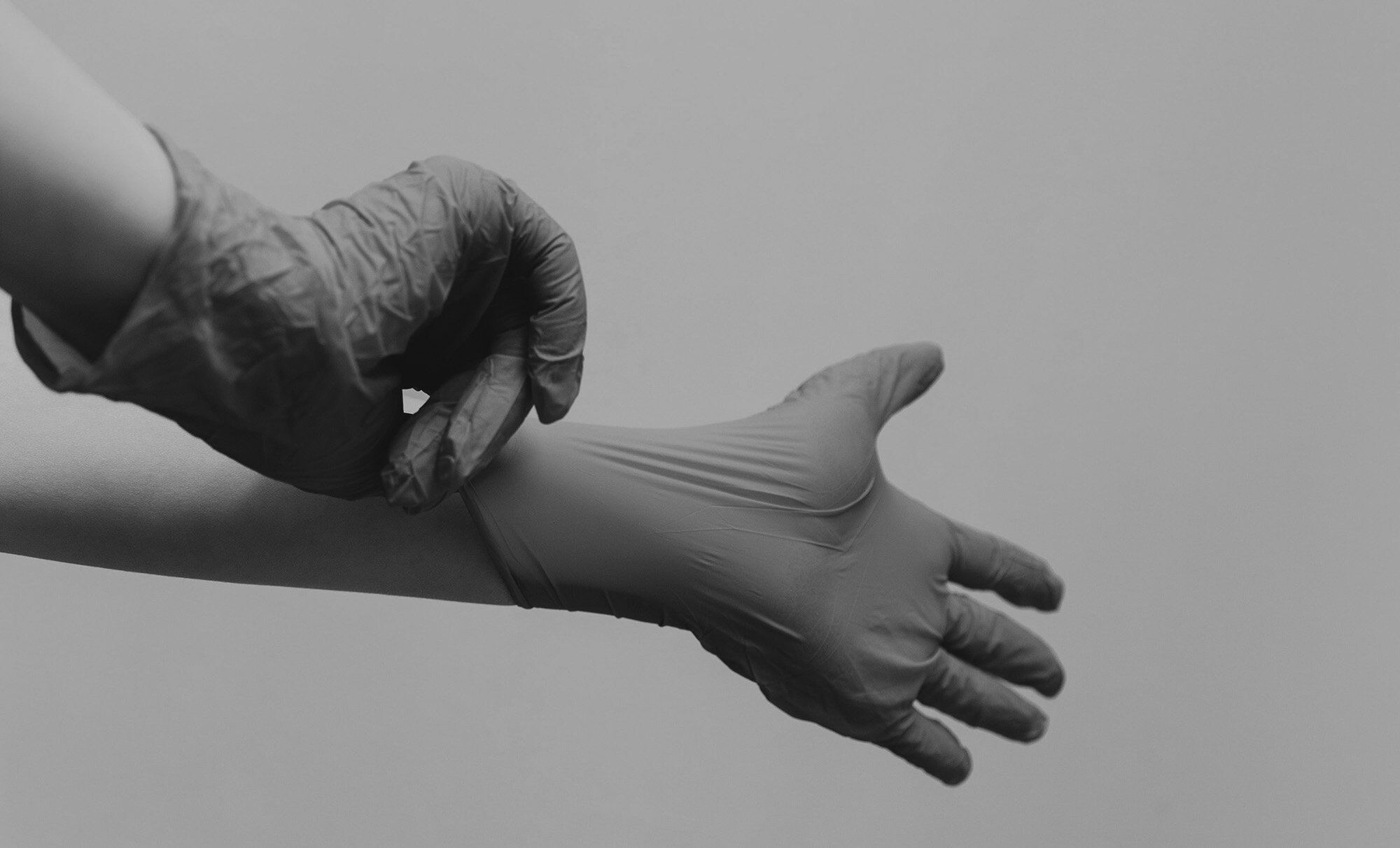
New Cleaning and Disinfecting Guide
Online Computer Library Center (OCLC) is a global library cooperative that provides shared technology services, original research and community programs for its membership and the library community at large. As part of its Reopening Archives, Libraries and Museums project (REALM), OCLC has published a Cleaning and Disinfecting guide containing advice for when services reopen to the public. The guide can be downloaded here.
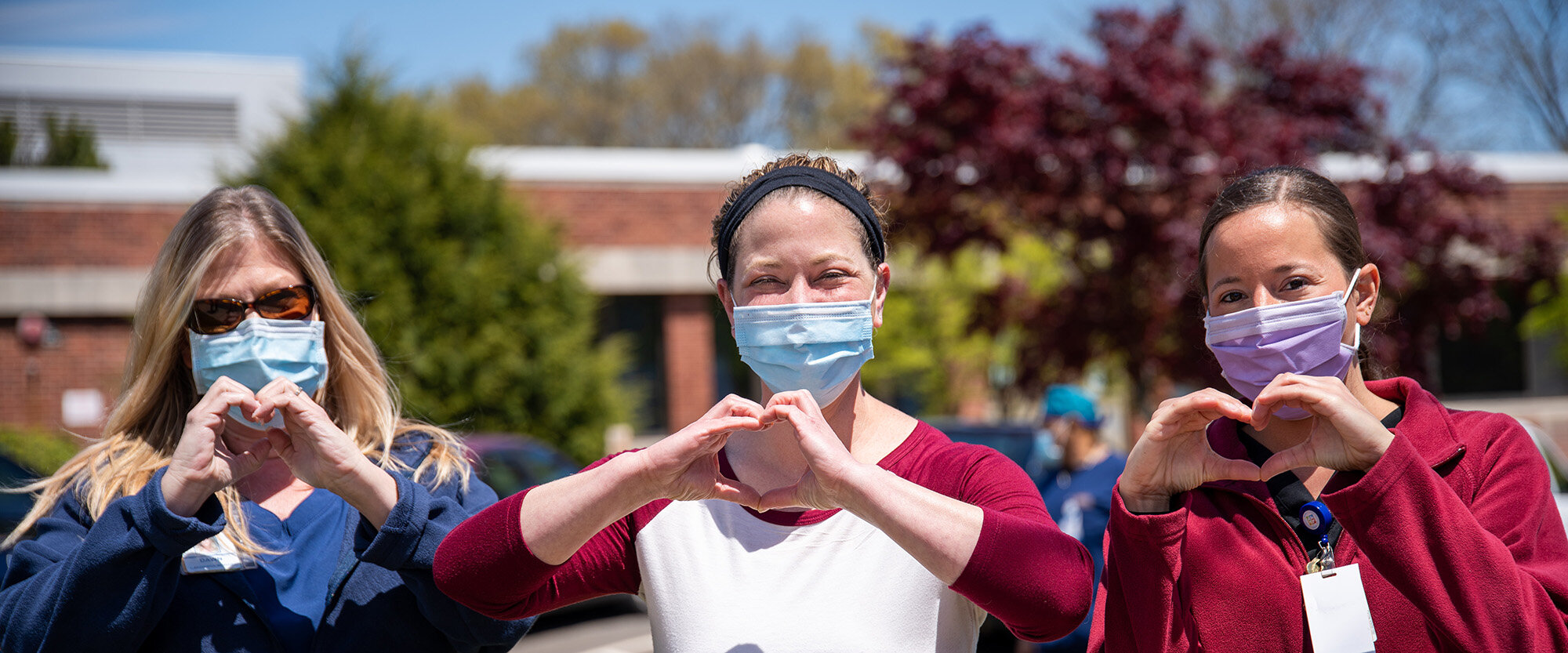
The UK National Archives’ latest COVID-19 guidance
The UK National Archives has updated its guidance in response to the latest national lockdown. Its latest COVID-19 update can be found here and its updated checklist for planning short-term service changes can be found here. The business continuity checklist is designed to support services at a point when access is being reduced during the pandemic.
The (UK) National Archives: TNA updated useful resources webpage can be found here:

Archives Unlocked Strategic Priorities 2020-22
The Strategic Priorities 2020-22 of Archives Unlocked, the UK National Archives’ collaborative vision for the UK archives sector have been announced. To adapt to this year's challenges, an online version of this publication has been created so that anyone can refer to the strategic priorities, wherever they are.
Our Strategic Priorities 2020-22 build on our previous one-year action plans and outline the work that we are doing to deliver the Archives Unlocked vision. We have arranged each of the priorities under the three ambitions of Archives Unlocked: trust, openness and enrichment.
In previous action plans, our actions for each ambition focused on the themes of digital capacity, resilience and impact. While these themes remain as relevant as ever, we are now widening our focus to include the themes of diversity and inclusion, innovation and risk, advocacy and reputation, and health and wellbeing. This will allow us to give greater attention to issues affecting us all, both within the archives sector and beyond.
Please visit our Archives Unlocked web page to see the progress that we've already made since the last action plan in late 2019.
The (UK) National Archives (TNA) has released a series of advocacy resources to convey the value of digital archives and the need to act now to preserve them. The new resources are part of TNA’s Plugged In Powered Up digital capacity building strategy.
The first resource is a short video which introduces the digital challenge and explains how TNA is here to help. It highlights the impact that small steps can make and the importance of developing digital preservation, access and engagement skills.
TNA’s leaflet for decision makers complements the video and explains why organisations must invest in the digital management of archives. It also warns of the risks of failing to preserve digital assets.
A second leaflet is for archive professionals themselves and lists the ways in which TNA can support archive professionals with advice and free skills training.
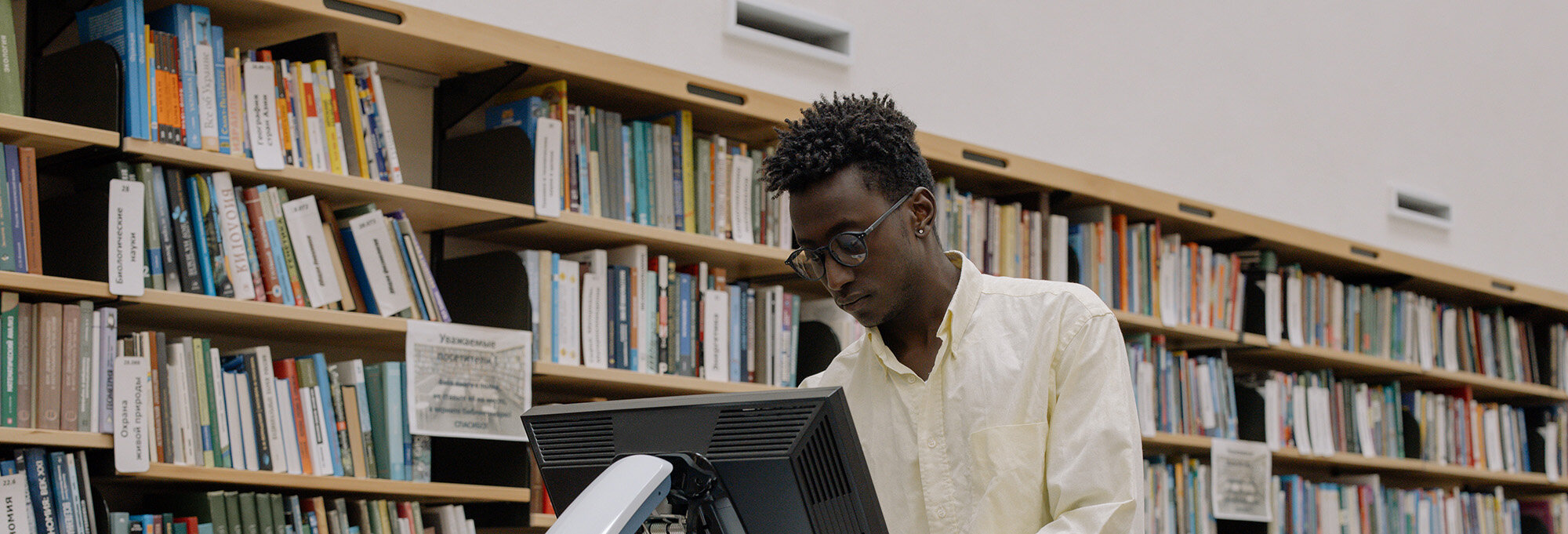
Museum Freelance survey findings now out
Museum Freelance – the organisation which delivered freelancer training for the ARA in March 2020 – has unveiled the findings of its survey into freelancers and freelancing with museums, galleries, heritage sites, libraries and archives.
The findings cover who freelancers are, their day rates, their motivations and challenges, as well as the Museum Freelance’s recommendations for organisations and freelancers, its next steps and much more.
You can view the full survey report, watch a recording from a presentation highlighting the findings the Museum Freelance gave to sector organisations and read a news release about the survey.

From Survival to Sustainability – support for the heritage sector during the COVID-19 pandemic
Rebuilding Heritage is a free support programme, funded by the National Lottery Heritage Fund, to help the heritage sector respond to the ongoing impacts of the COVID-19 pandemic. It aims to build confidence in a time of crisis by supporting individuals and organisations to overcome immediate challenges and plan for a sustainable future. It will provide training, advice, and support through:
one-to-one and group coaching and training sessions
opportunities for knowledge sharing
open access webinars
online guides and case studies
The programme is coordinated by The Heritage Alliance and will be delivered through a partnership with Clore Leadership, Creative United, the Chartered Institute of Fundraising, and Media Trust. It is funded by the National Lottery Heritage Fund.
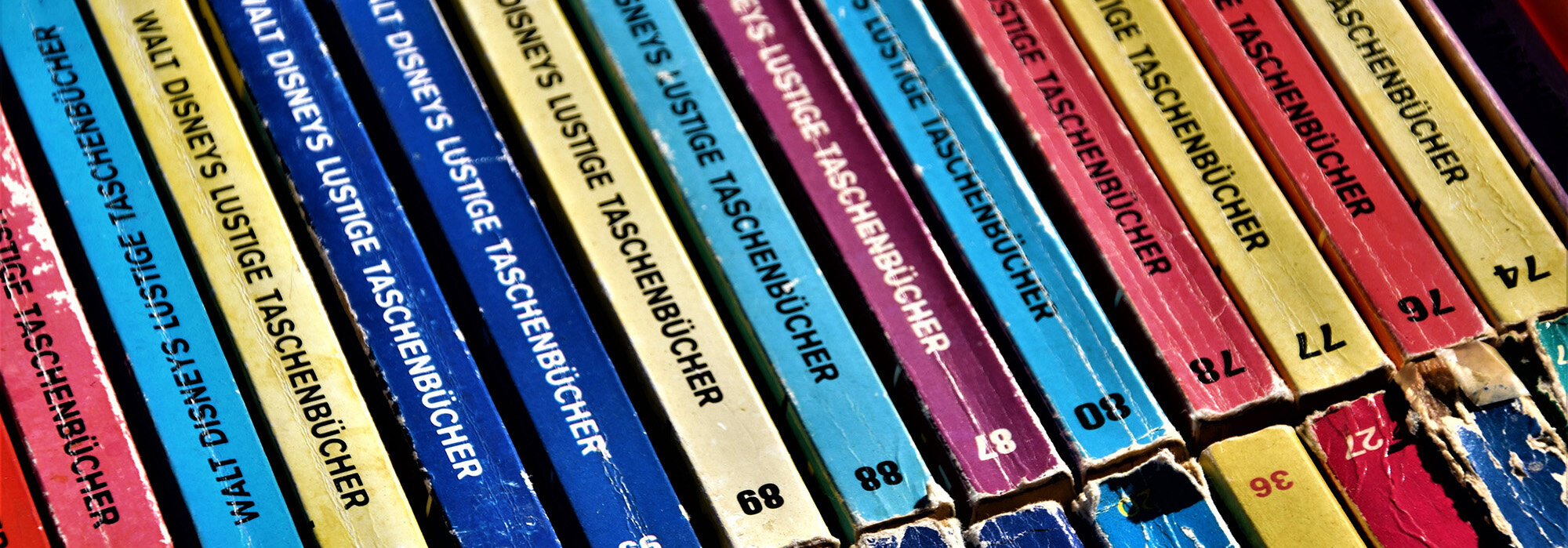
REALM Project Test Results
Longevity of Coronavirus on materials
As part of the REALM Project’s research, Battelle has conducted four natural attenuation studies to provide information on how long the Coronavirus may survive on materials common to archives, libraries, and museums. The studies were conducted by applying the virulent SARS-CoV-2 virus on five materials held at standard room temperature (68°F to 75°F) and relative humidity conditions (30 to 50 percent). The materials were a hardback book cover, a softcover book cover, a plastic protective cover, a DVD case and expanded polyethylene foam.
Results show that after six days of quarantine the SARS-CoV-2 virus was still detected on all five materials tested.
Click here for full details of the test results.
Open Preservation Foundation (OPF) publishes digital preservation community survey results
The findings report and raw data from the OPF digital preservation community survey are now available on the OPF website - https://openpreservation.org/news/digital-preservation-community-survey-results-published/
With responses gathered from 98 organisations in 31 countries, the results provide an interesting snapshot of the digital preservation landscape today.
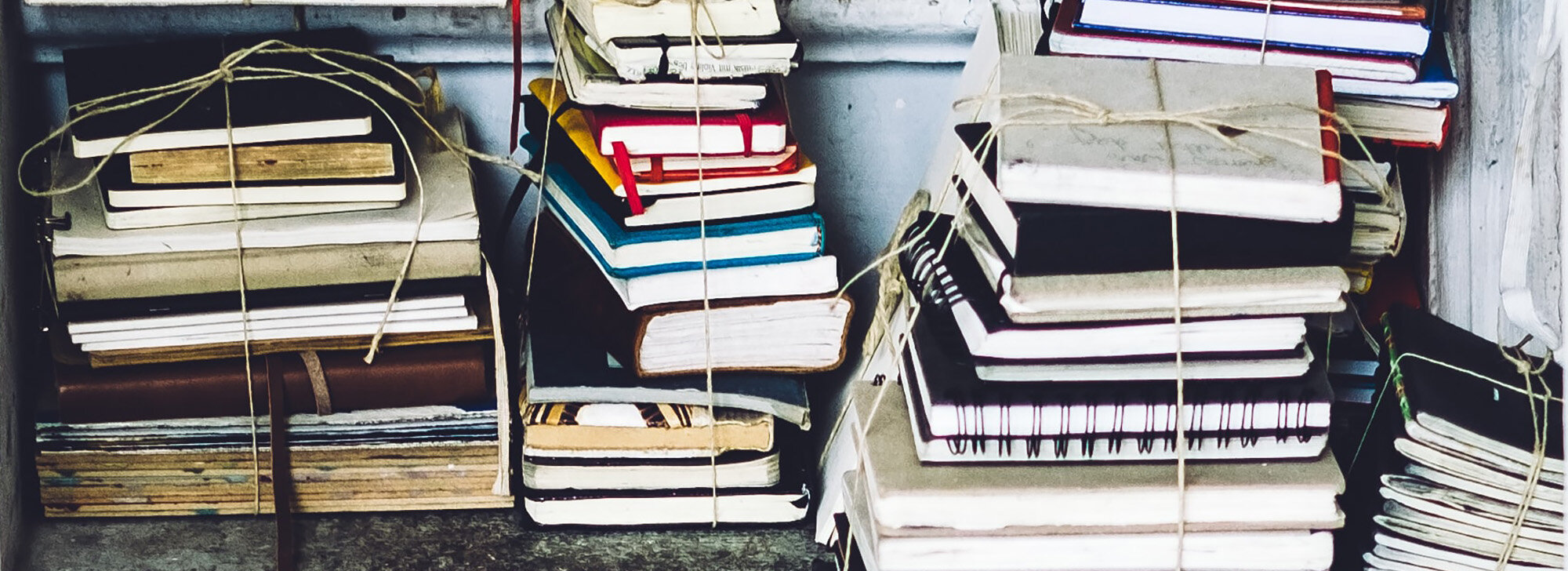
Community archives toolkit
The Norfolk Record Office is running a ‘Community Archives: Skills, Support and Sustainability’ project to enable community archive groups to preserve, manage and provide access to their historical collections through guidance, training and resources. The project has created a Community archives toolkit that explains how to collect, catalogue, digitise and preserve archive material.
The project also monitors the Norfolk Archives Network Forum, where community archive groups can promote their collections, network with their peers and request professional help. The Norfolk Record Office would like to thank the National Lottery Heritage Fund for their valuable role in funding the Community Archives project and would also like to thank National Lottery players for making this project possible.
#NationalLotteryHeritageFund
@HeritageFundM_E
Follow @BLSoundHeritage on Twitter or visit http://www.bl.uk/projects/save-our-sounds.
Historic England: latest guidance from Historic England on cleaning and disinfecting historic surfaces https://historicengland.org.uk/coronavirus/historic-places/cleaning-disinfecting-historic-surfaces/
Arts Council England are administering a separate portion of the DCMS funding to arts and cultural organisations (both non-profit and for-profit) based in England. More details can be found here.
The British Film Institute are also administering the Culture Recovery Fund for Independent Cinemas in England, on behalf of the UK Government. Details can be found here.
The (UK) National Archives: TNA updated useful resources webpage can be found here:
ICOM and UNESCO’s COVID-19 reports findings for museums and museum professionals
To gather information on how the ongoing COVID-19 outbreak is affecting and will affect the cultural sector in the short and long term, ICOM launched a global survey to analyse the impact of lockdowns. The survey covered five themes: the current situation for museums and staff, predicted economic impact, digital and communication, museum security and conservation of collections, freelancer museum professionals. The report has analysed almost 1,600 responses from museums and museum professionals, in 107 countries and across continents, which were collected between 7 April and 7 May 2020.
In parallel, UNESCO Report ‘Museums Around the World in the Face of COVID-19’ (May 2020) contains the results of UNESCO’s world-wide survey conducted on the impact of COVID-19 on museums. The report provides new insights into the numbers and key trends of museums around the world, the measures museums have taken in response to the pandemic and actions proposed for the aftermath of the crisis. The report underscores the resilience of museums, as well as the challenges they face in their efforts to continue to promote access to culture.
Read the full ICOM report on the ICOM website.
Read the full UNESCO report on the UNESCO website.
ICON Conservation and care of collections during the coronavirus pandemic: Guidance produced by the UK Heads of Conservation Group for museums and other organisations trying to care for collections during the coronavirus lockdown.
www.icon.org.uk/news/conservation-and-care-of-collections-during-the-coronavirus-pandemic
ICO Data protection and coronavirus information hub: Regularly updated advice and guidance.
www.ico.org.uk/global/data-protection-and-coronavirus-information-hub
The following 'Covid-19 Resources Roundup' spreadsheet has been compiled to help small and medium sized institutions access the most useful advice and assist the response to lockdown and reopening. Covid19 Resources Roundup V8 compiled by Victoria Stevens ACR
Dealing with FOI enquiries during the coronavirus crisis: guidance from the FOIMan blog.
Scottish Natural Heritage
https://www.nature.scot/coronaviruscovid-19
Historic Environment Scotland
https://www.historicenvironment.scot/coronavirus/
Historic England
https://historicengland.org.uk/coronavirus
SSE Enterprise: Guidance from SSE Enterprise on the ways in which building services can be used to reduce the spread of COVID-19, with a particular focus on ventilation and air conditioning.
CADW: the Welsh Government's historic environment service
Arts Council England’s Emergency Funding Package
Details of the Arts Council’s emergency funding for National Portfolio Organisations, organisations outside the National Portfolio, and individuals. There is also information for organisations that are currently in receipt of funding from the Arts Council and details of further support available from government and non-government sources.
www.artscouncil.org.uk/covid19
Arts Council of Northern Ireland
The latest guidance for the arts sector in Northern Ireland on the Coronavirus (COVID-19) outbreak.
http://artscouncil-ni.org/news/coronavirus-covid-19-advice
The National Lottery Heritage Fund
Details of the National Lottery Heritage Fund’s Emergency Fund, providing short-term funding for organisations delivering heritage projects or running previously funded projects, and safeguarding heritage sites that the National Lottery Heritage Fund has previously invested in.
www.heritagefund.org.uk/news/coronavirus-update
The Heritage Council of Ireland
https://www.heritagecouncil.ie
Canadian Conservation Institute: Caring for Heritage Collections during the COVID-19 Pandemic
www.cac-accr.ca/wp-content/uploads/dlm_uploads/2020/04/cci_covid-19_en_2020-04-17.pdf
Canadian Association for the Protection of Cultural Property: Detailed guidance on caring for heritage collections during the COVID-19 pandemic, including specific advice against using disinfectants when cleaning collections.
https://www.cac-accr.ca/wp-content/uploads/dlm_uploads/2020/04/cci_covid-19_en_2020-04-17.pdf
The Yale University COVID-19 Contingency Planning Public Health Committee has reviewed the most recent research into how long the SARS-CoV-2 (the virus that causes the disease, COVID-19) is active on surfaces for a certain amount of time and has concluded that the virus is no longer infectious on surfaces after 36 hours. It should also be noted that the likelihood of getting infected with the virus from an object or surface is low in a non-healthcare facility setting when practicing good personal hygiene. Click here for further information.
Museum Freelance Network - dealing with the COVID-19 outbreak as a freelancer: Emergency resources for freelancers.
www.museumfreelance.org/news-and-views/2020/3/13/dealing-with-covid-19-outbreak-as-a-freelancer
Arts Council England Guidance: Closed venues and sites – advice on meeting security and environmental conditions for GIS and general collections purposes.
Taylor & Francis (ARA Journal publishers): COVID-19: free-to-access novel coronavirus content. This new microsite provides links and references to all relevant COVID-19 research articles, book chapters and information in support of the global efforts in diagnosis, treatment, prevention and further research into COVID-19.
Europeana - supporting galleries, libraries, archives, and museums: Supporting cultural heritage professionals in advice for the time of COVID-19.
www.pro.europeana.eu/post/supporting-cultural-heritage-professionals-in-the-time-of-covid-19
The Digital Repository of Ireland - COVID-19: Playing our Part: The Digital Repository of Ireland has identified several key areas for support.
The Oral History Society: The society gives advice on the practicalities and ethics of remote interviewing, as well as some technical guidance.
www.ohs.org.uk/advice/covid-19/
Mass Observation Archive: advice and guidance from the Mass Observation Archive for community archives who might wish to collect material on their own community’s experience and diaries of the pandemic. They could either participate in or take example/guidance from this project.
www.massobs.org.uk/about/what-s-on/205-covid19
The Society of American Archivists: a resource kit and guidance on documenting in times of crisis.
www2.rchivists.org/advocacy/documenting-in-times-of-crisis-a-resource-kit
Historic England: guidance from Historic England on how to clean historic surfaces
https://historicengland.org.uk/coronavirus/historic-places/cleaning-historic-surfaces/
An article about how to treat books during COVID-19: http://blog.bne.es/wp-content/uploads/2020/04/How-to-act-with-books-in-the-face-of-the-risk-of-COVID-19.pdf
The Institute of Museum and Library Services: Details of a COVID-19 Research Partnership to inform safe handling of collections, reopening practices for libraries, Museums: https://www.imls.gov/news/covid-19-research-partnership-inform-safe-handling-collections-reopening-practices-libraries
Explore your Archive: useful toolkits including guidance on using social media to promote archives and records: https://www.exploreyourarchive.org
Naomi Korn Associates: useful copyright and data protection resources, including one on social media, from Naomi Korn Associates who specialise in copyright, data protection and licensing. www.naomikorn.com/resources
Reopening Archives, Libraries, and Museums (REALM): Sign up for updates from a US-based project, Reopening Archives, Libraries, and Museums (REALM), which is testing how long the Coronavirus remains active on collection material: https://www.webjunction.org/explore-topics/COVID-19-research-project.html
The International Federation of Library Associations and Institutions (IFLA): This IFLA document summarises different responses internationally to the question of how long to quarantine books. See the section on 'Handling Materials'. For example, in France it's 72 hours for paper but 10 days for plastic-coated materials. https://www.ifla.org/covid-19-and-libraries#handling
Library of Congress: The findings of a research project on the impact of hand sanitisers on collection materials. https://www.loc.gov/preservation/scientists/projects/sanitize.html
International Council On Archives: A statement from the International Council on Archives entitled ‘COVID-19: The duty to document does not cease in a crisis, it becomes more essential.’ https://www.ica.org/en/covid-19-the-duty-to-document-does-not-cease-in-a-crisis-it-becomes-more-essential
British Standards Institution (BSI): Building on formal guidance issued by UK Government, BSI has developed a new Safe Working Guidance set of guidelines to assist organisations as they adjust the way they work, and protect workers and other people in their workplace from the ongoing risks related to the coronavirus that causes COVID-19. This document will be revised frequently to reflect the dynamic situation, considering comments from users, government guidance, the level of risk and emerging knowledge. https://www.bsigroup.com/en-GB/topics/novel-coronavirus-covid-19/covid-19-guidelines/?utm_source=pardot&utm_medium=email&utm_campaign=SM-STAN-PRM-COVID19%2FGuidelines-2005

